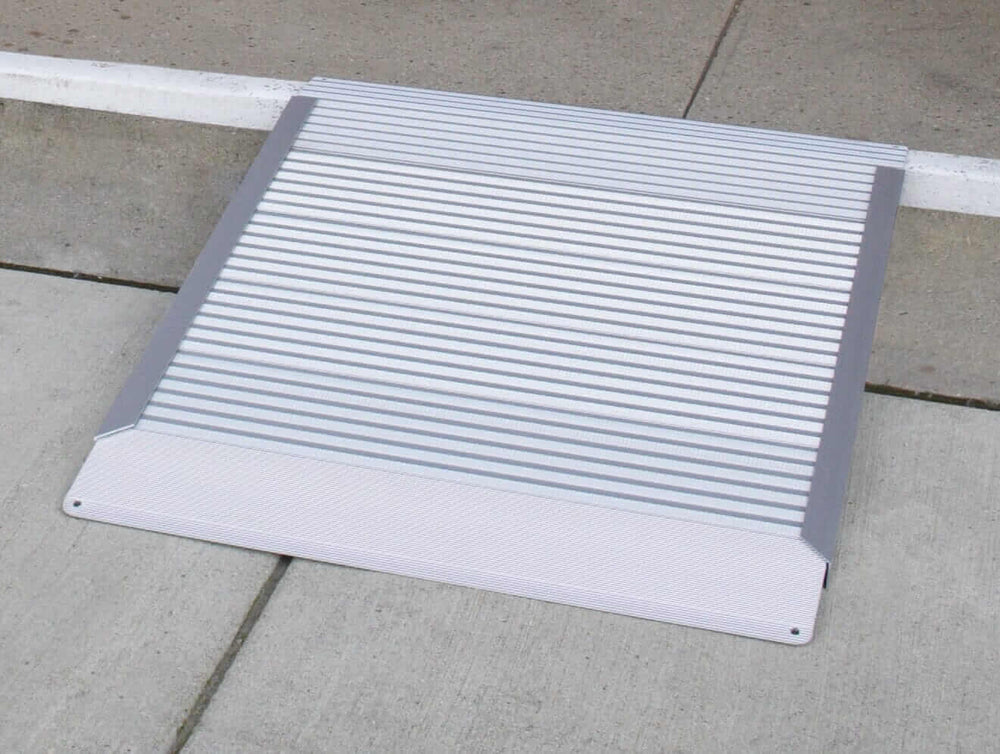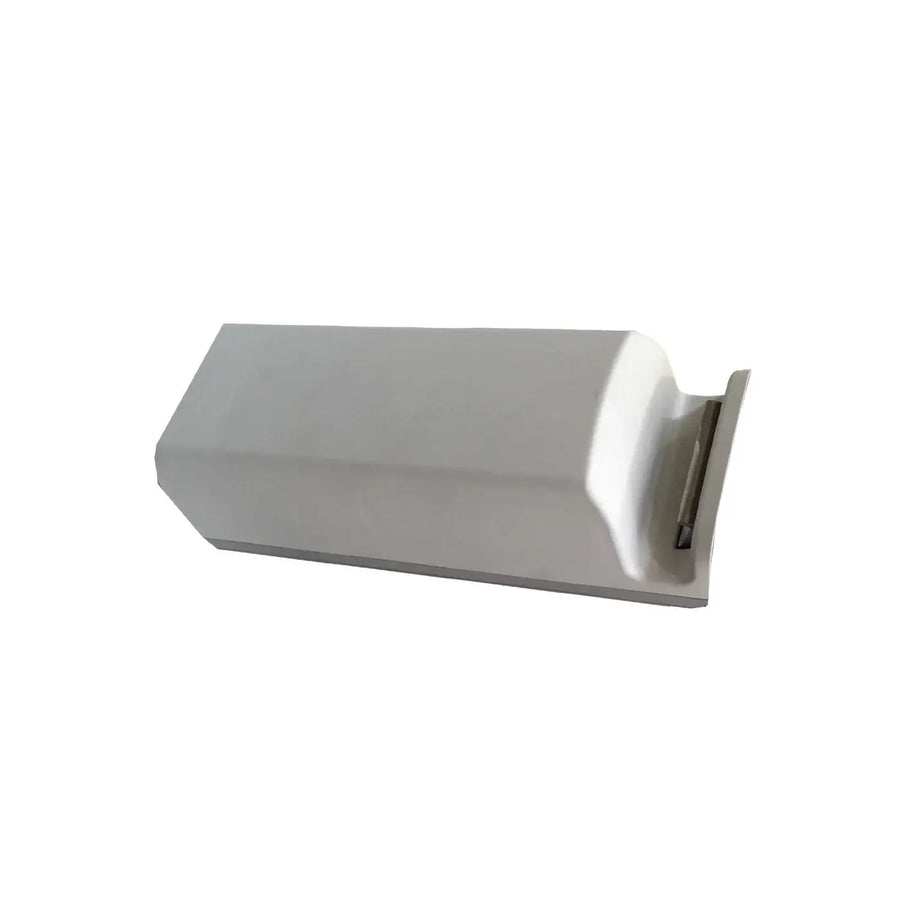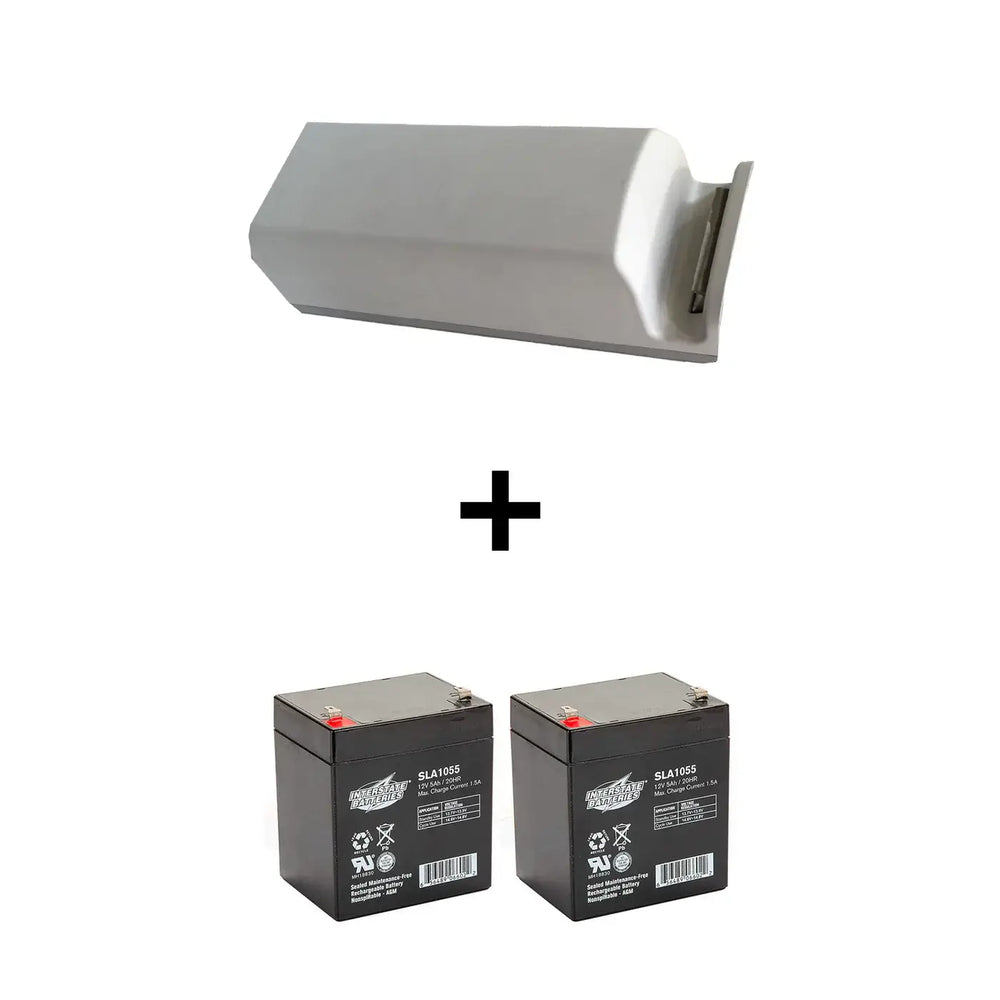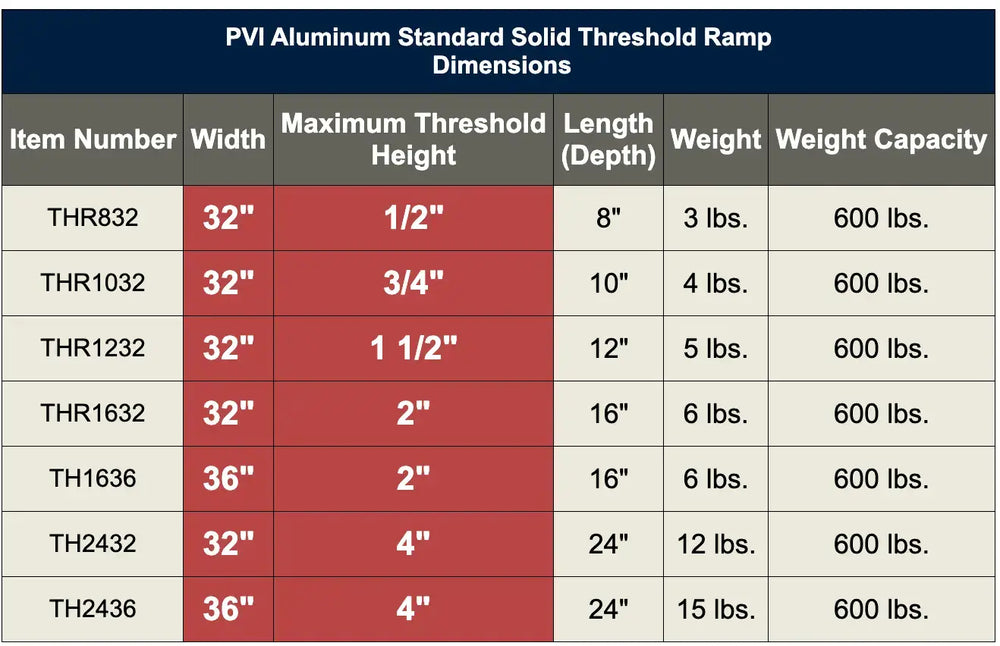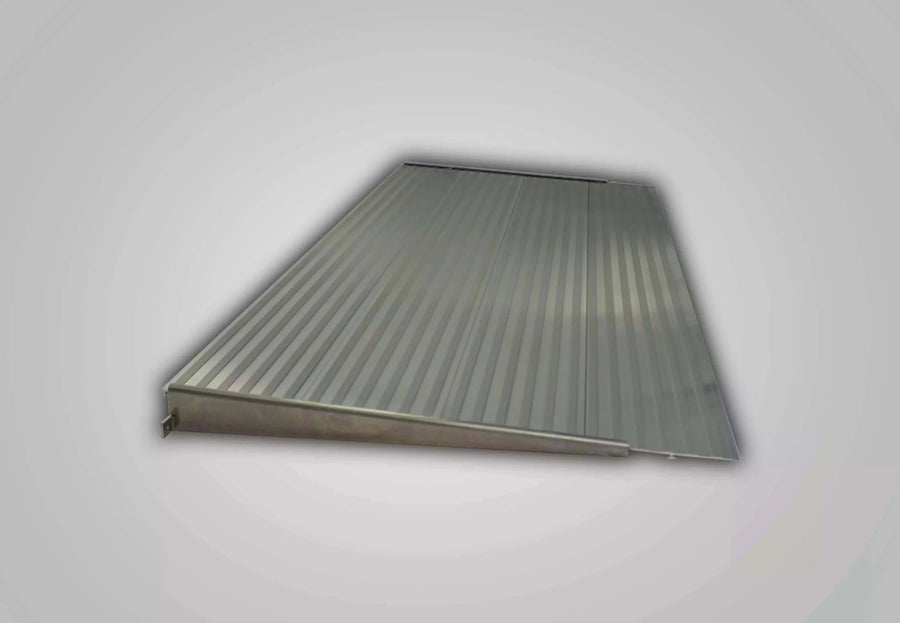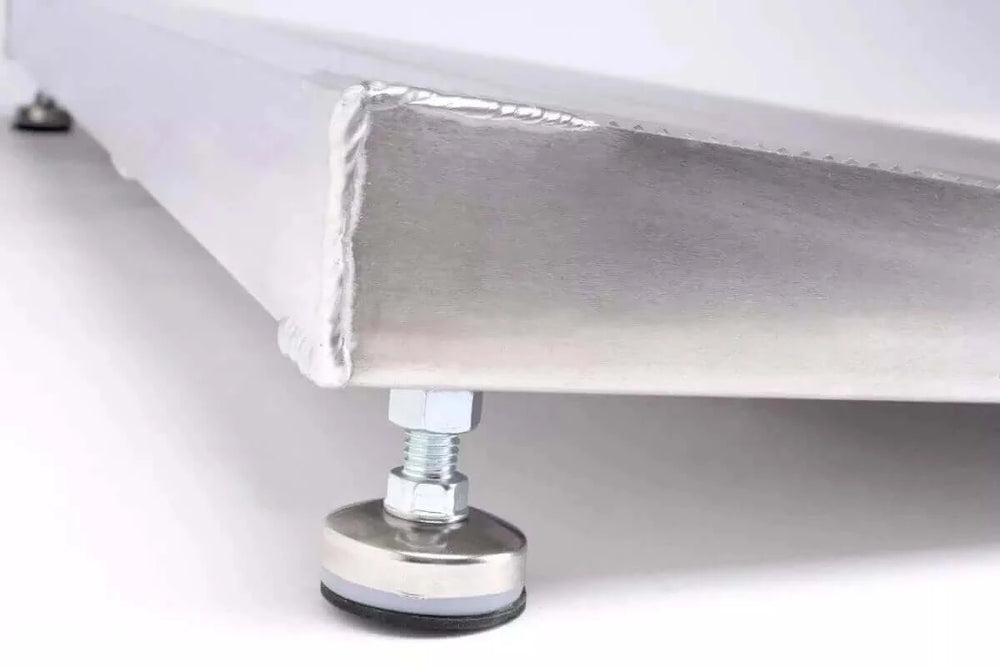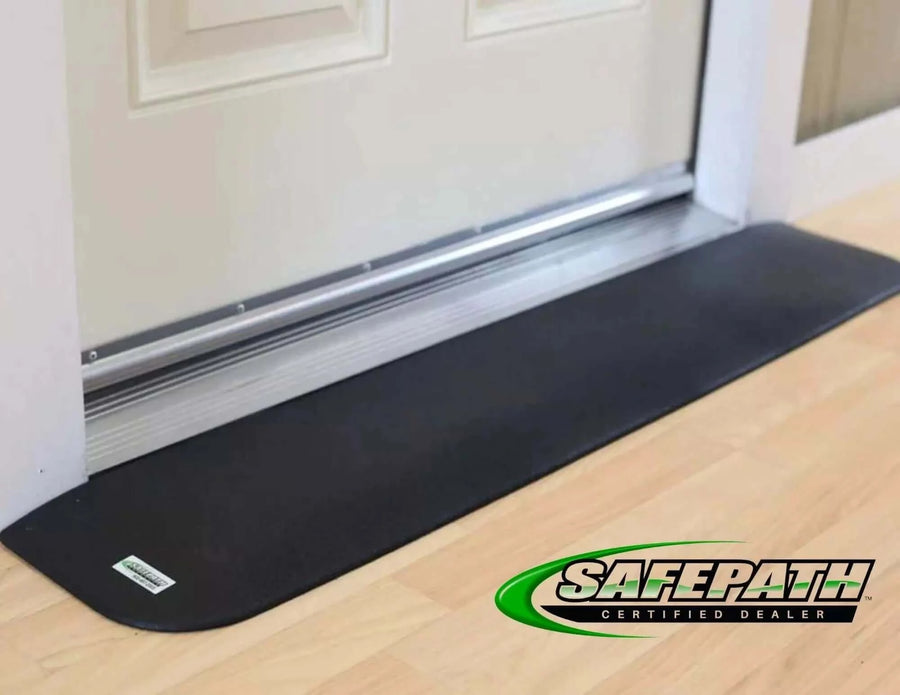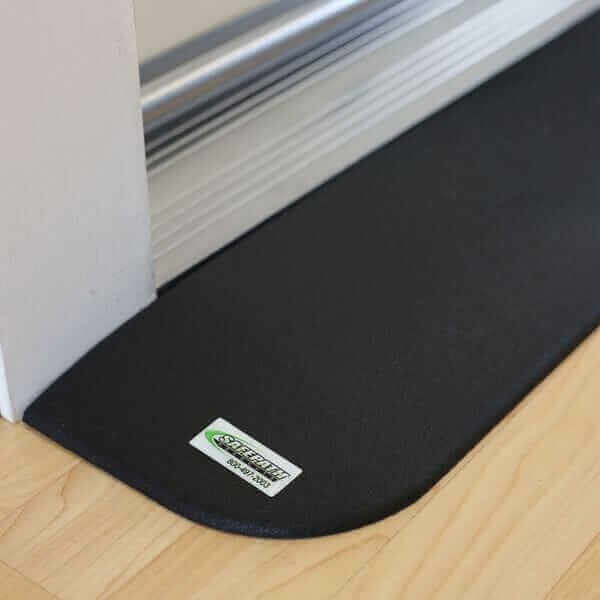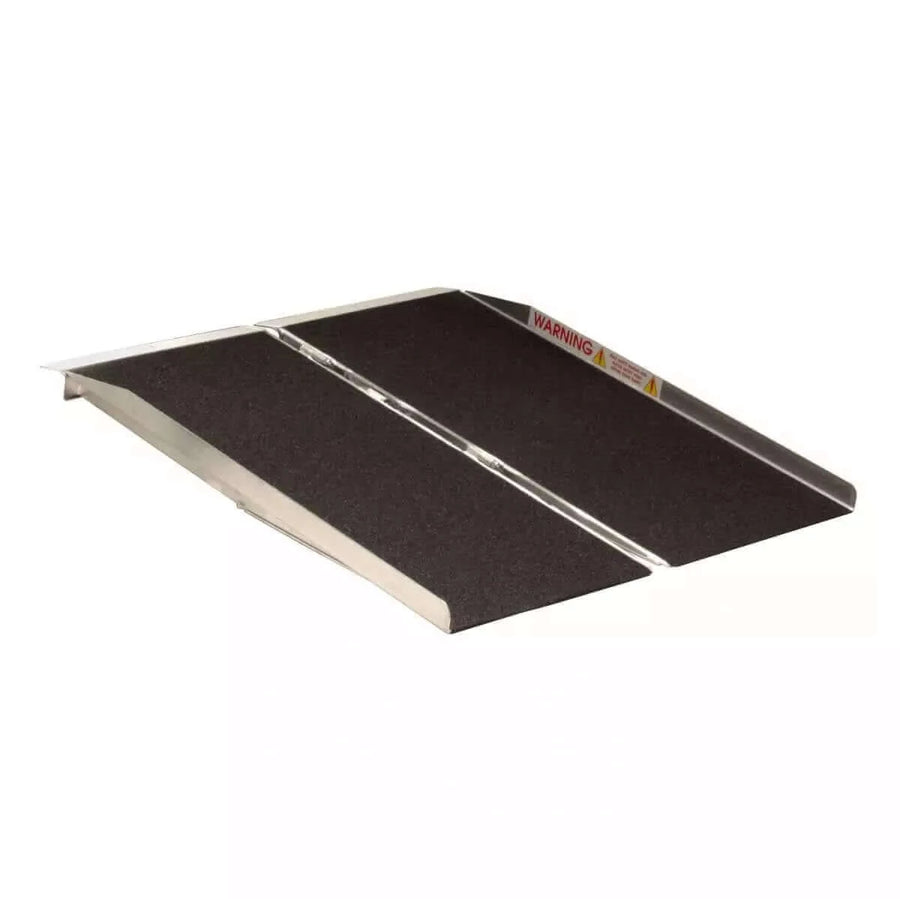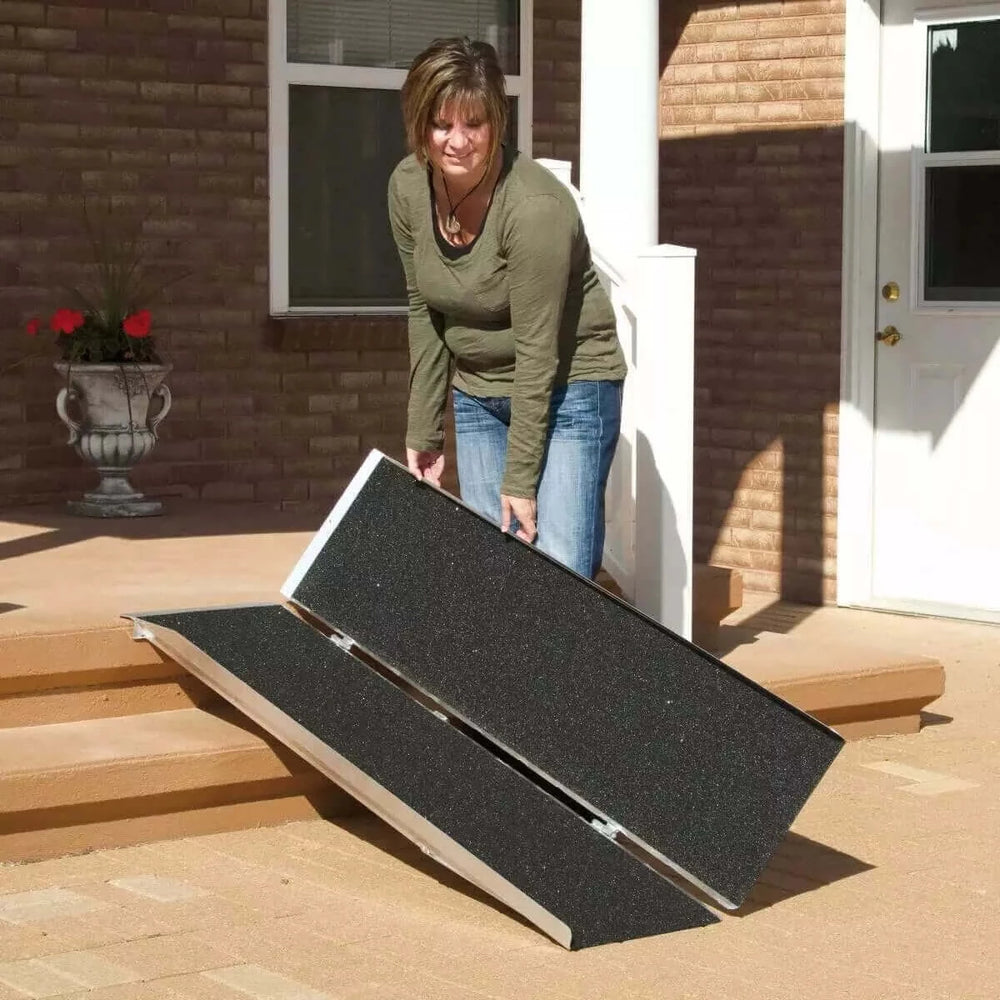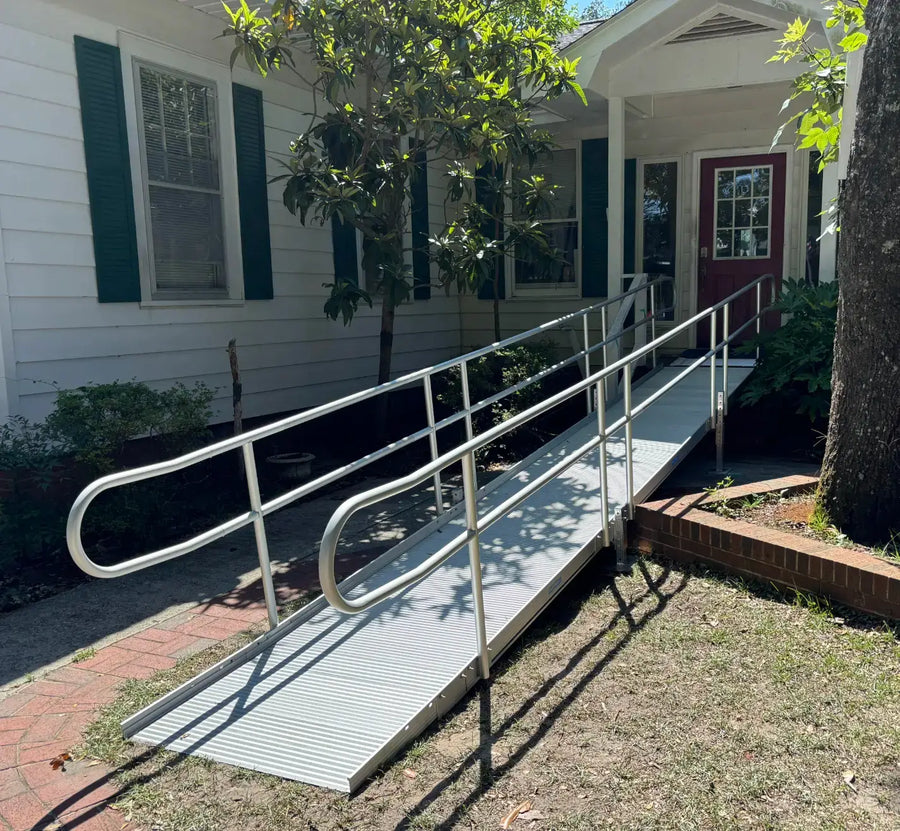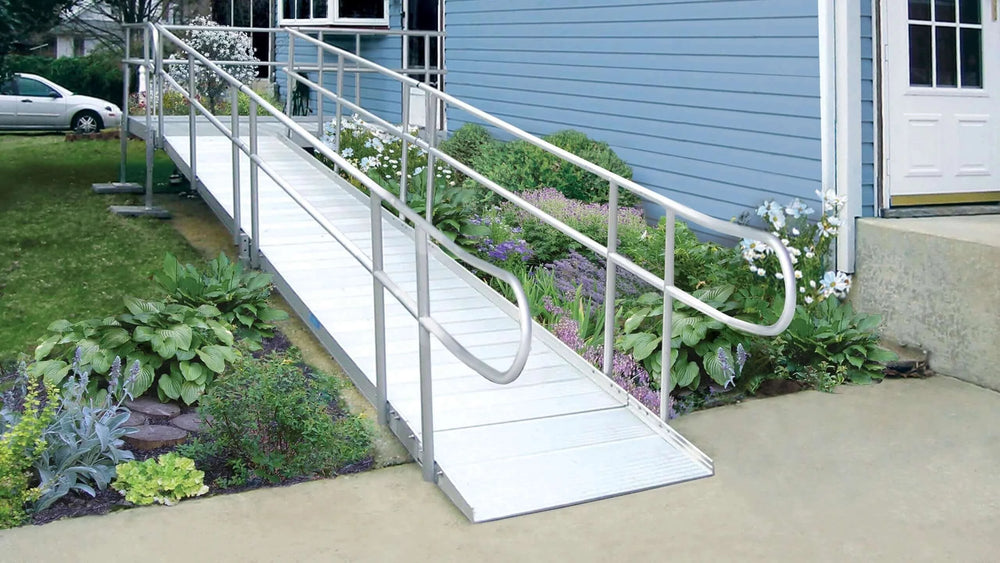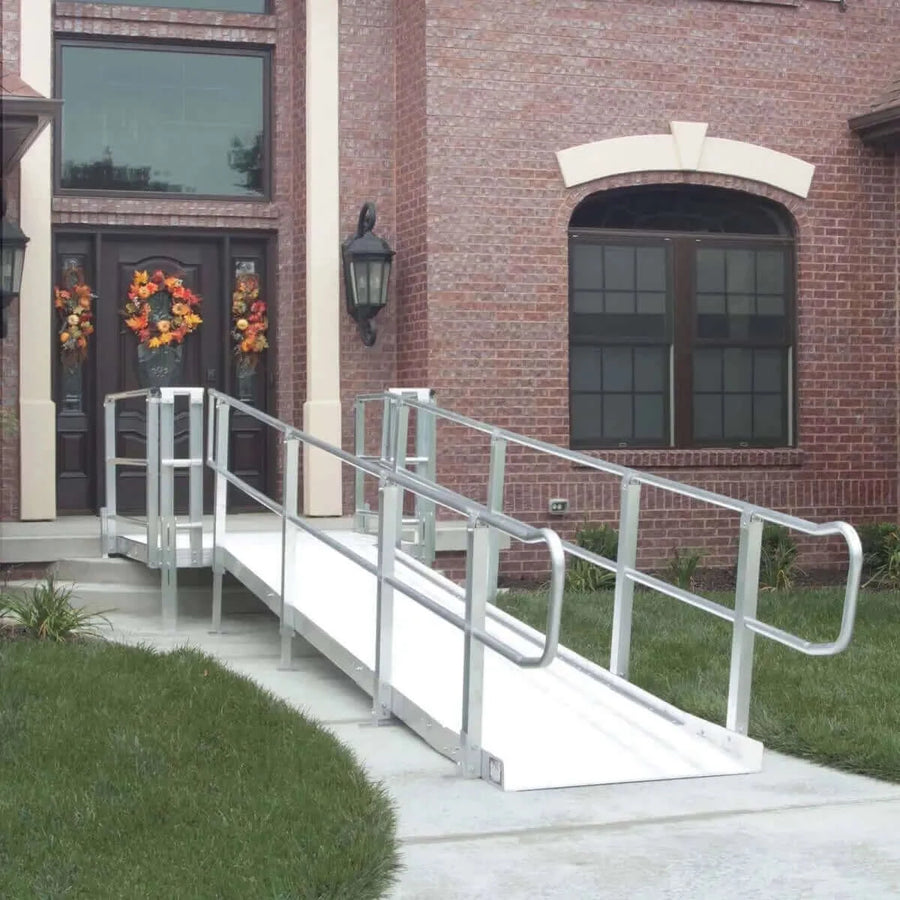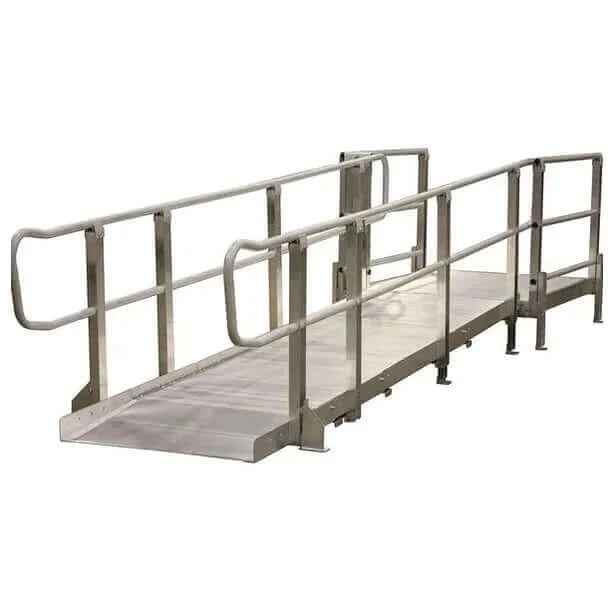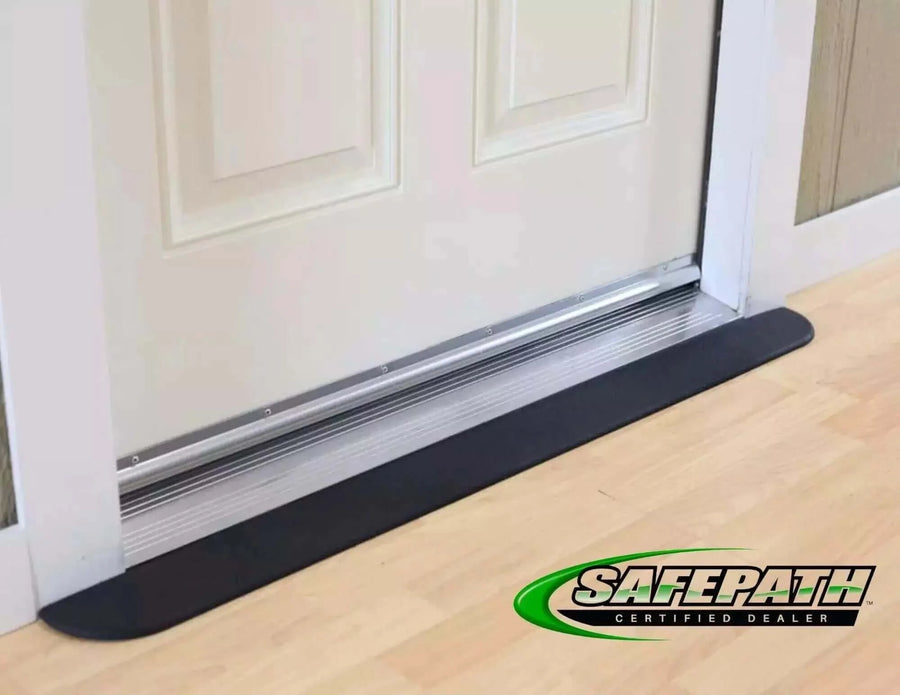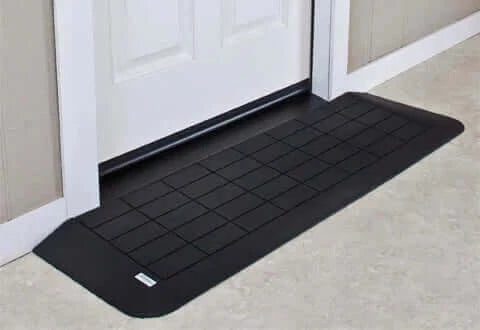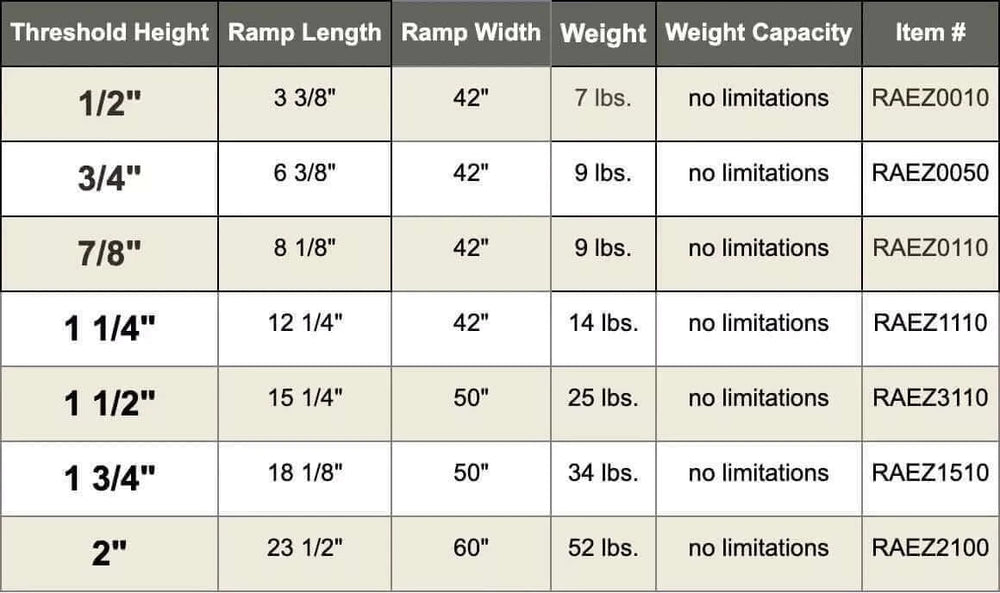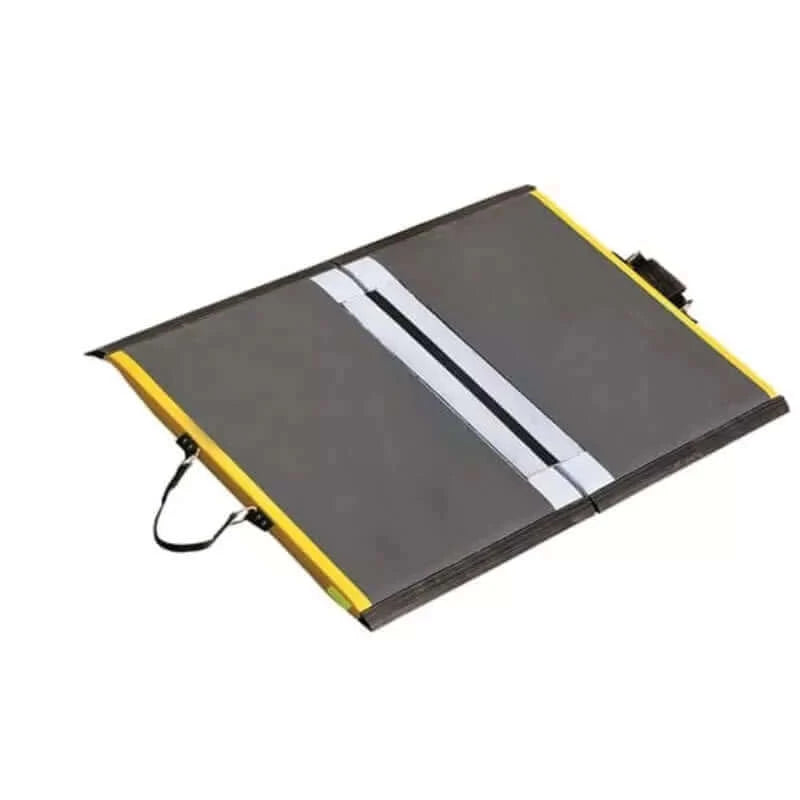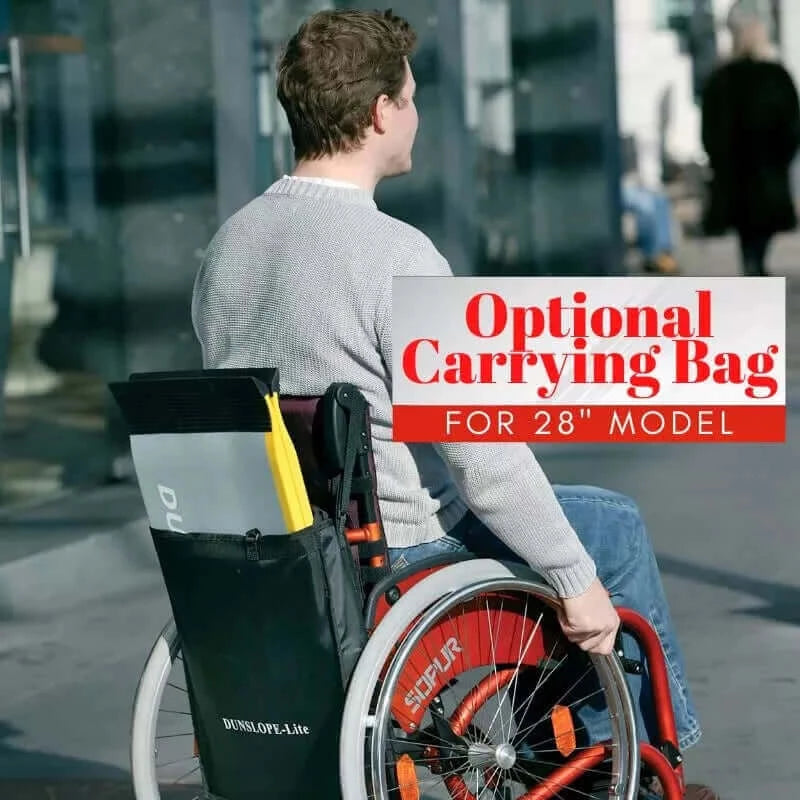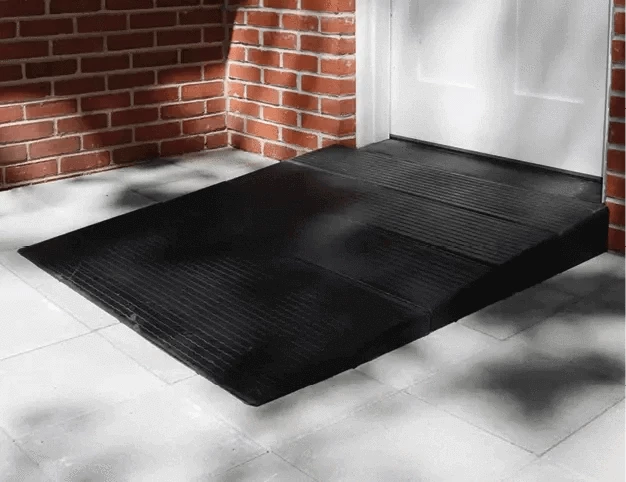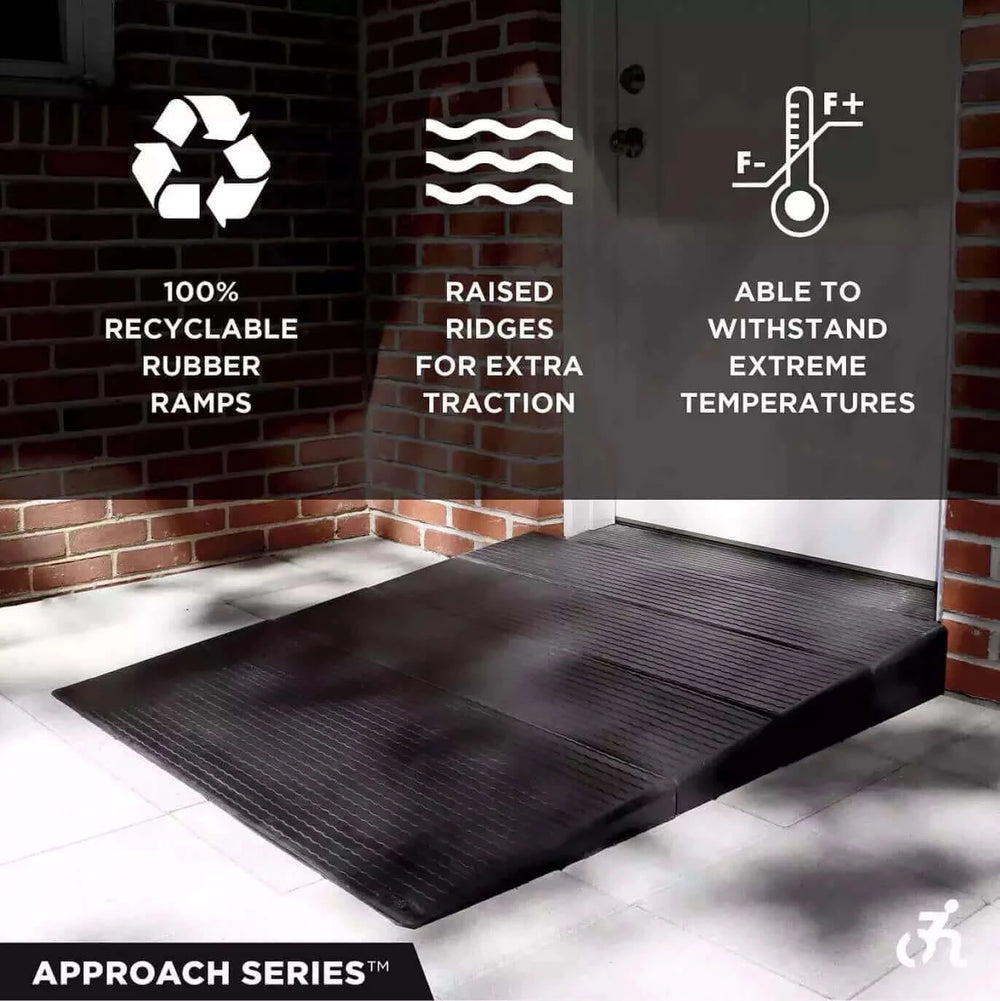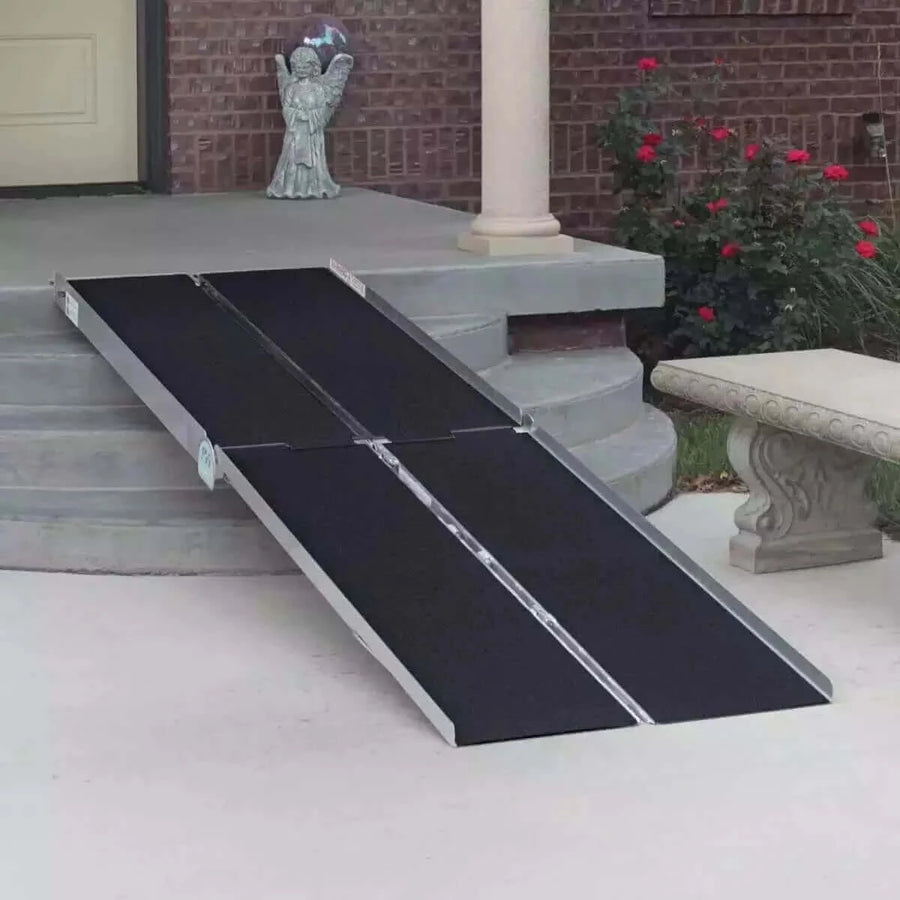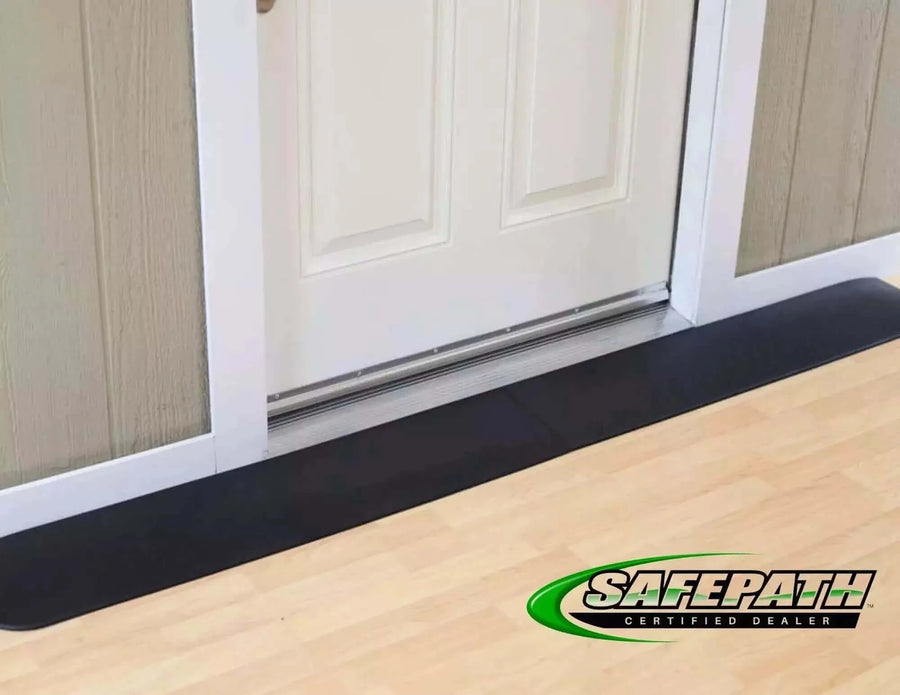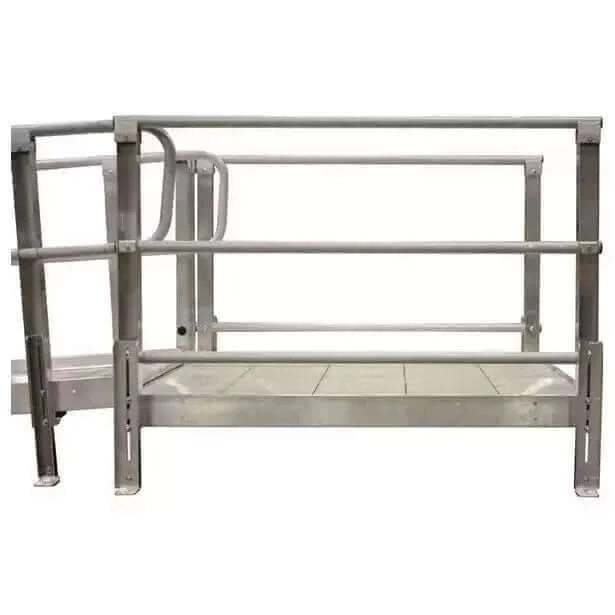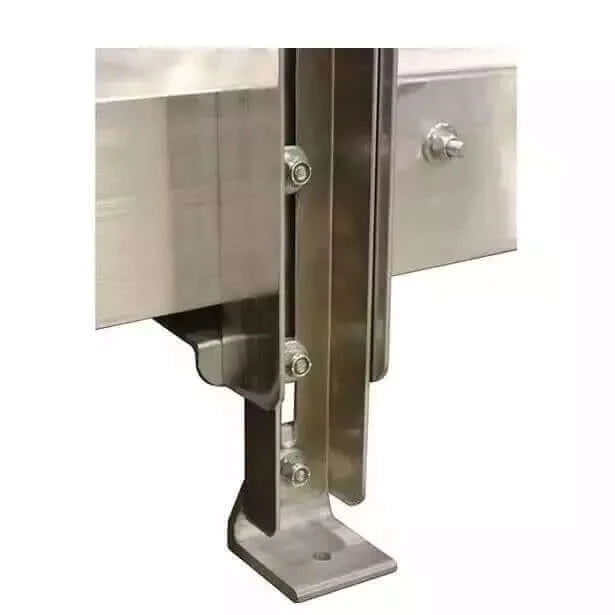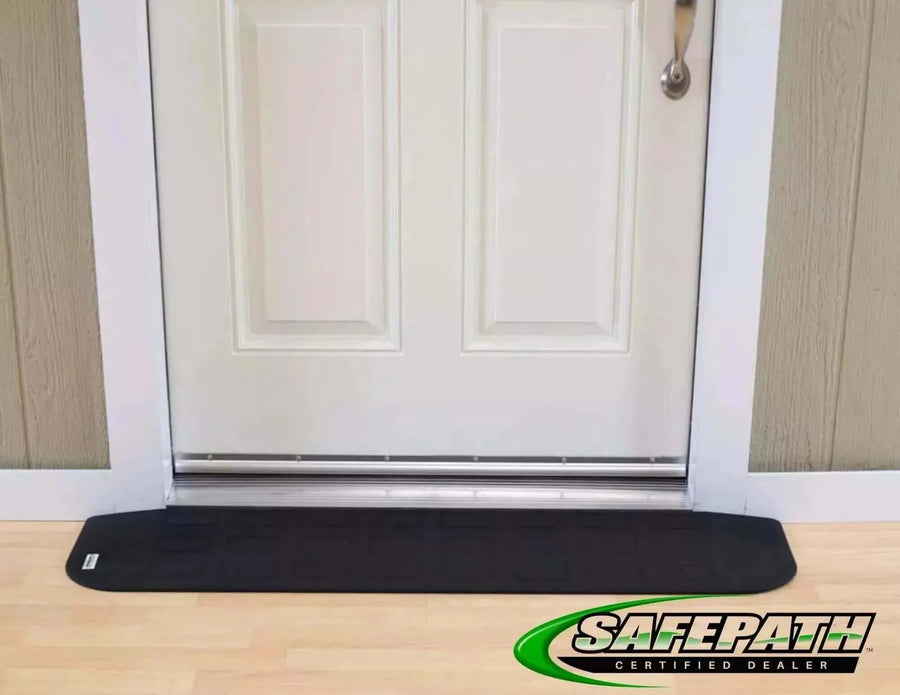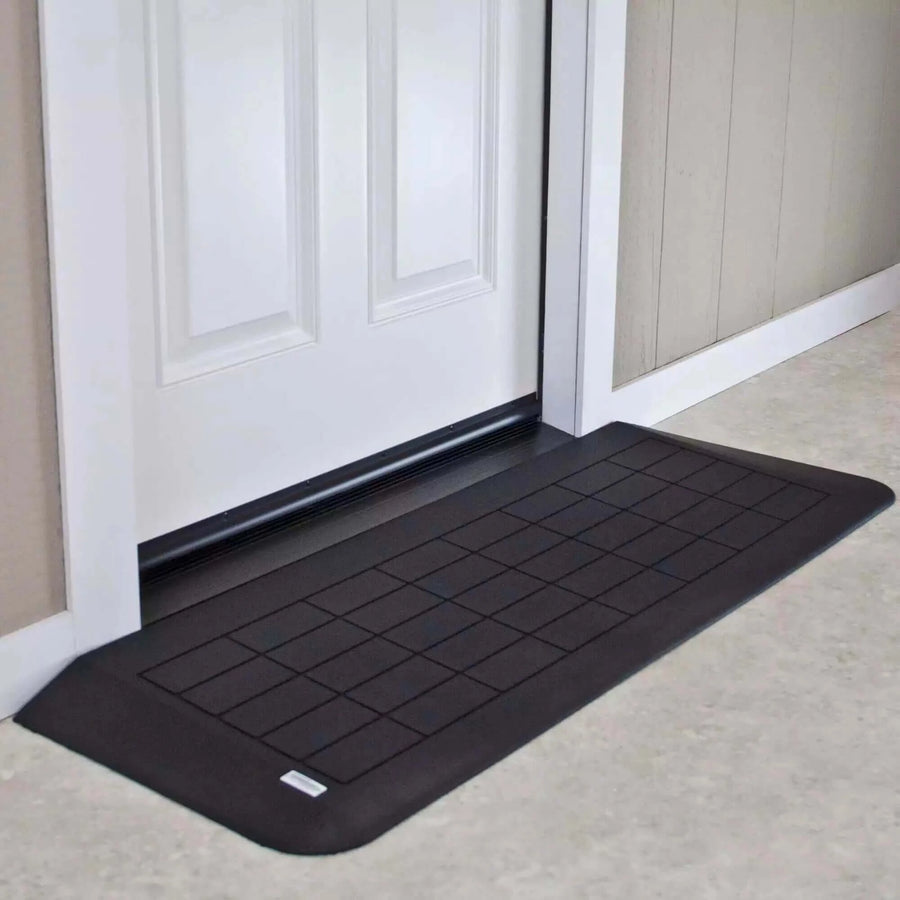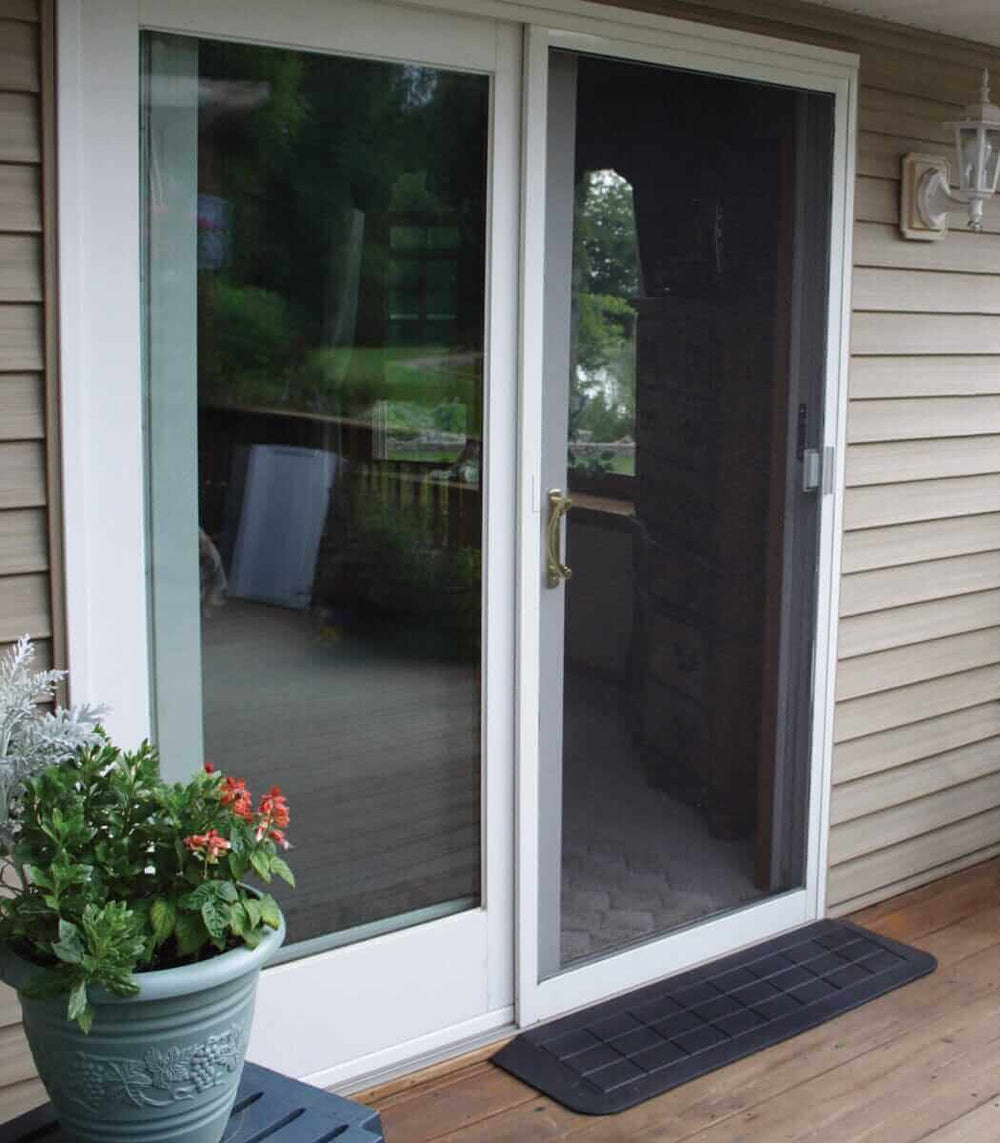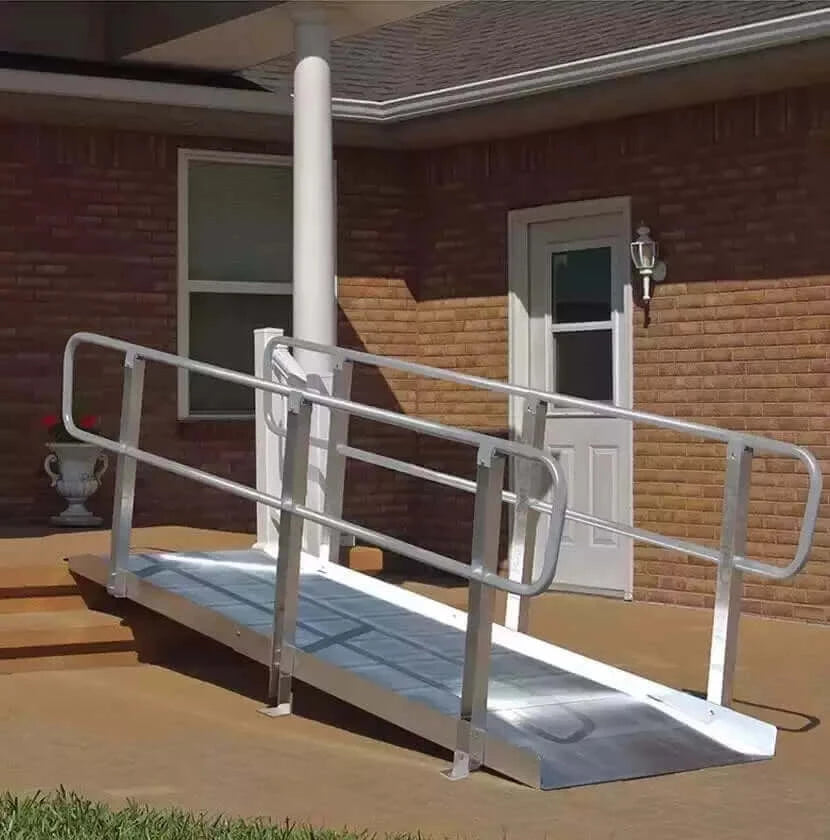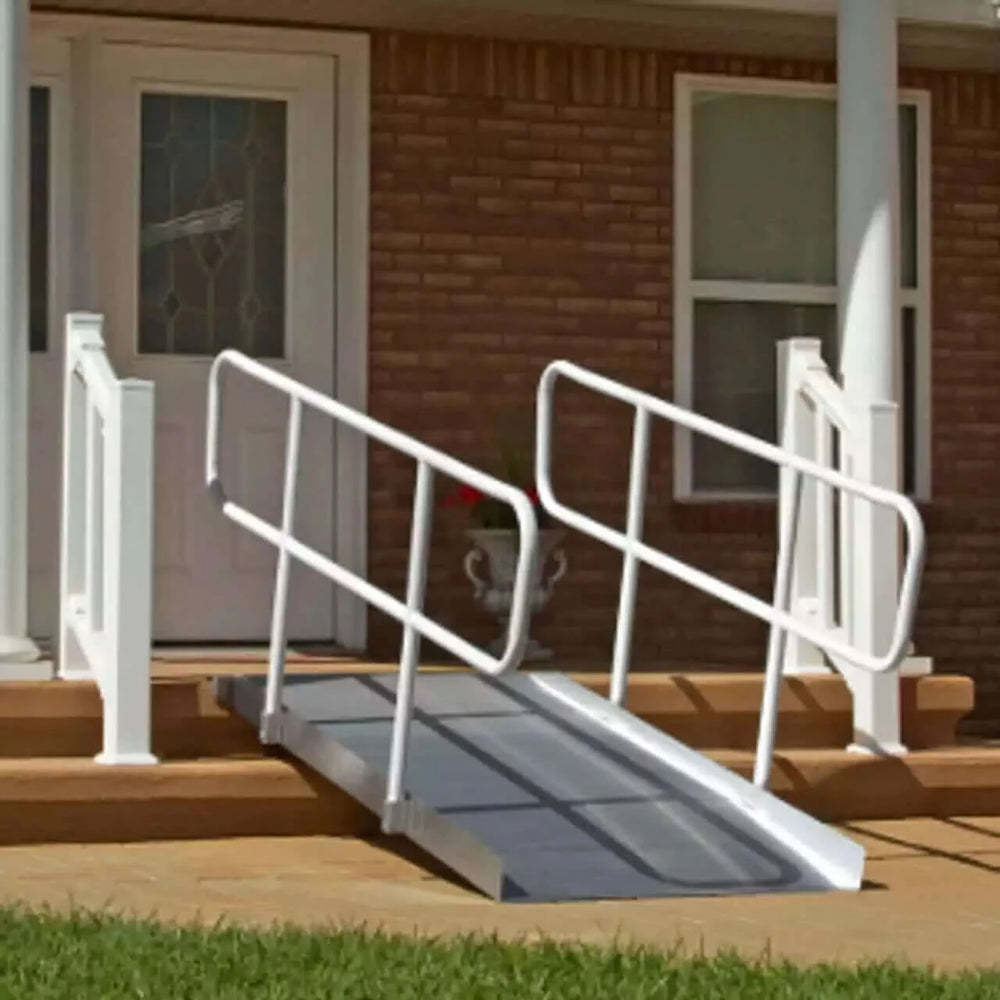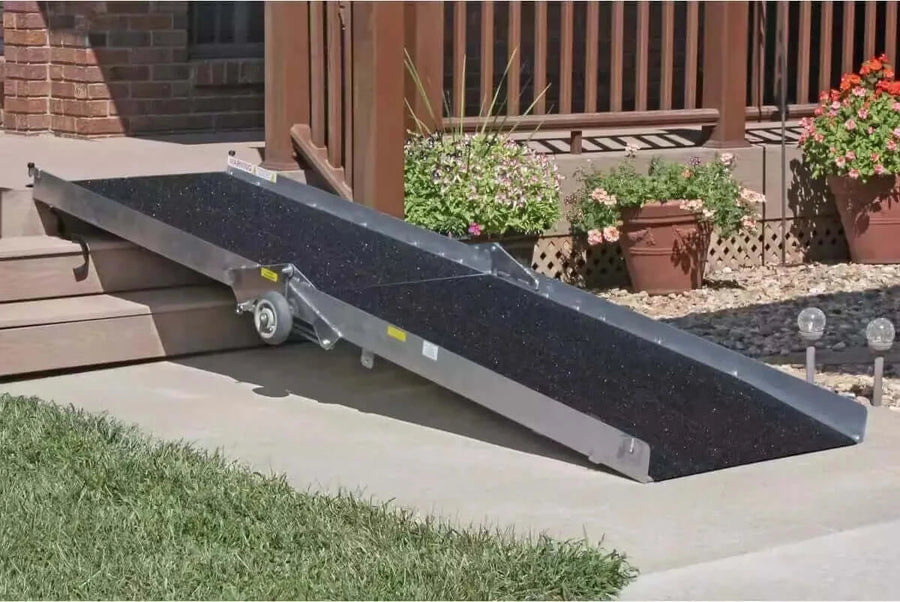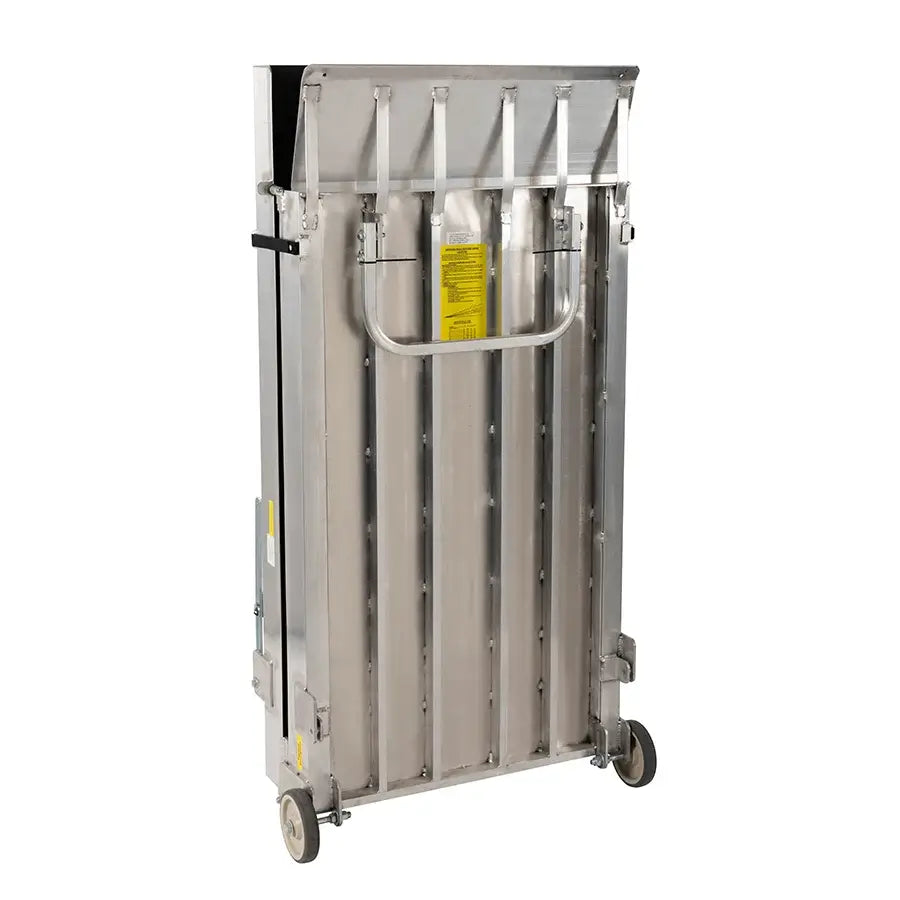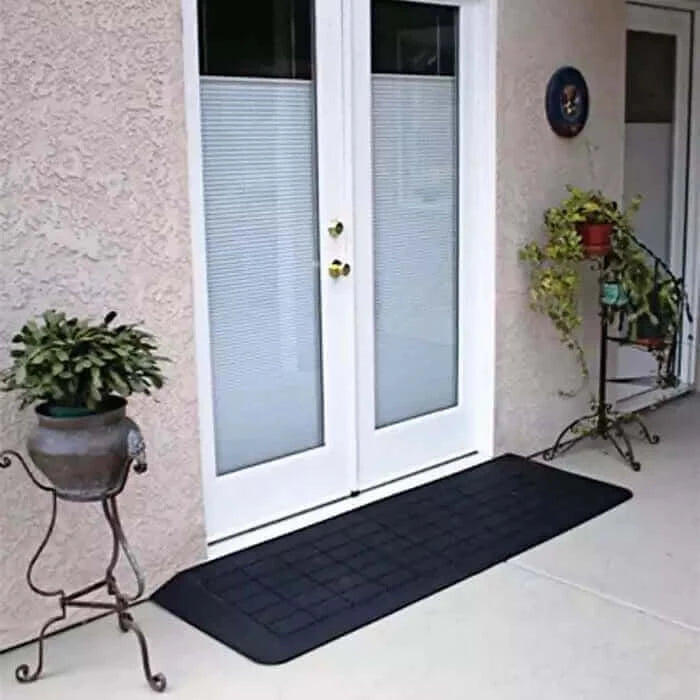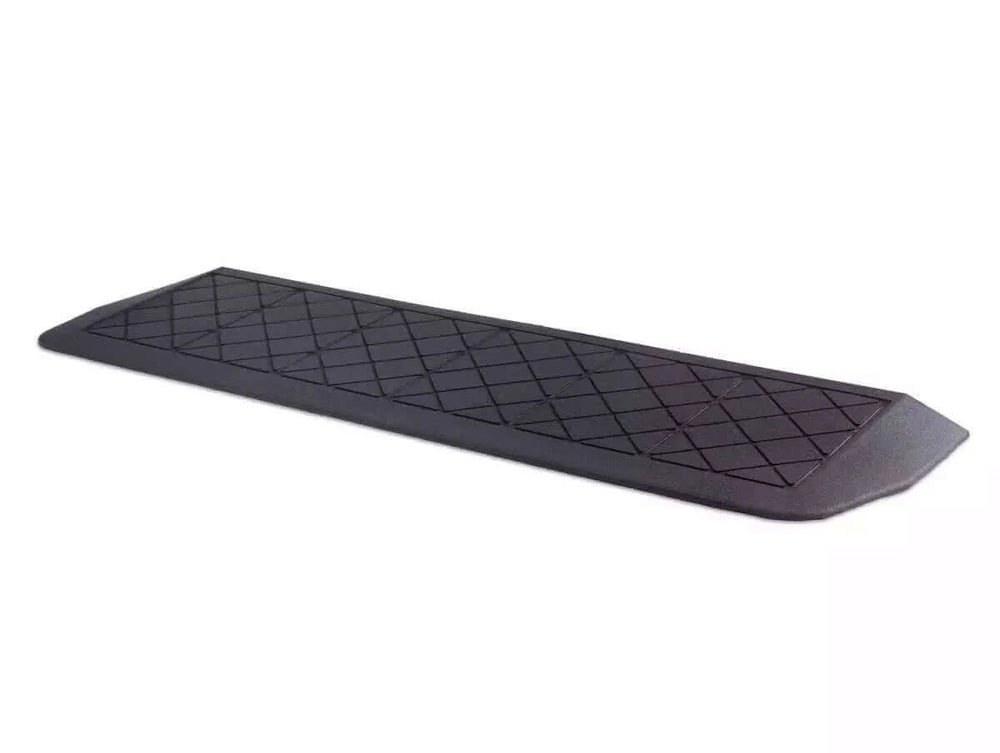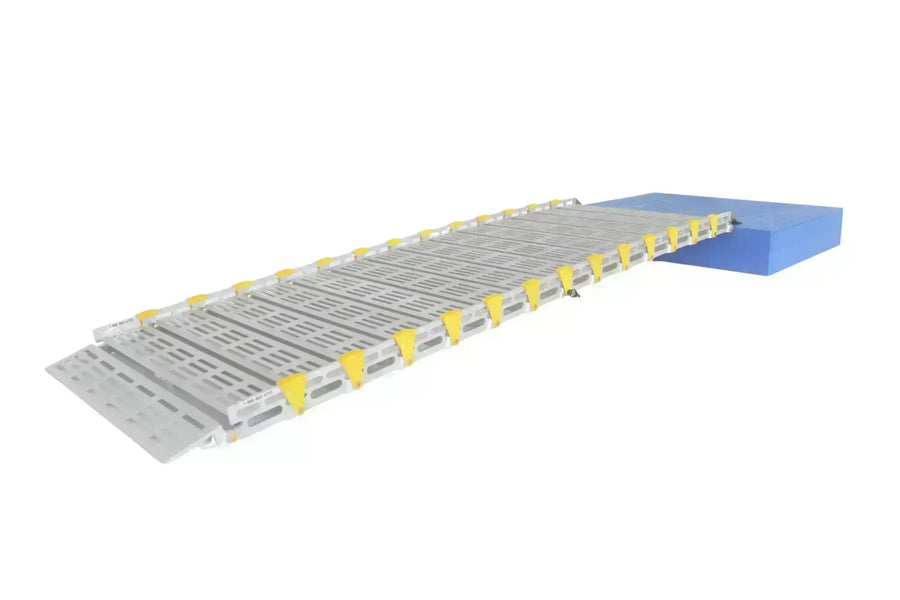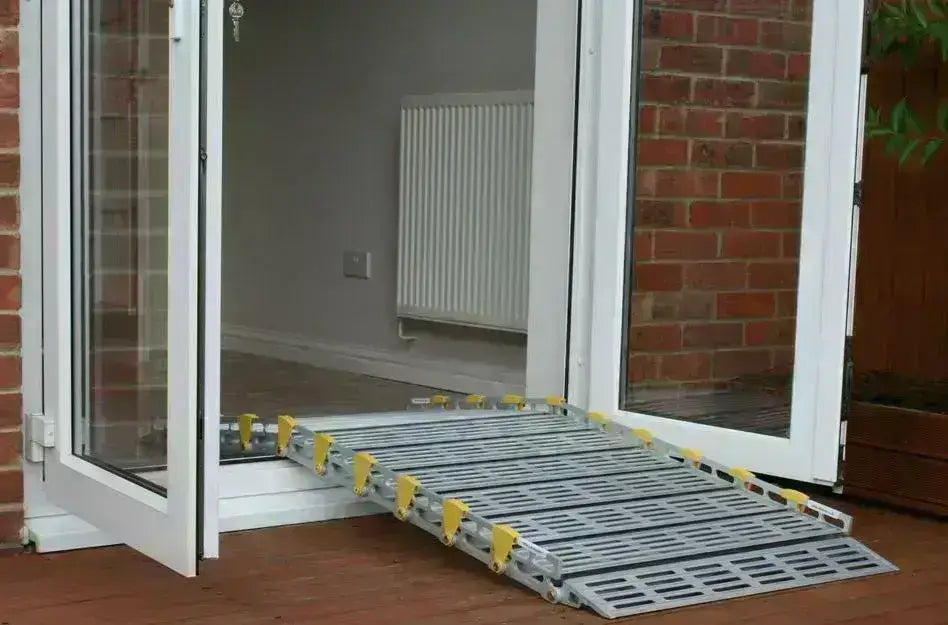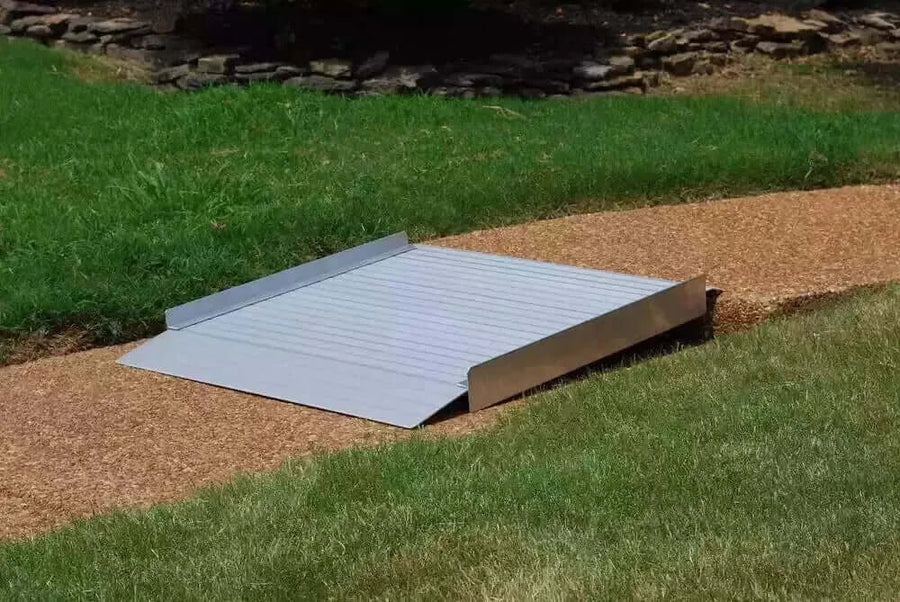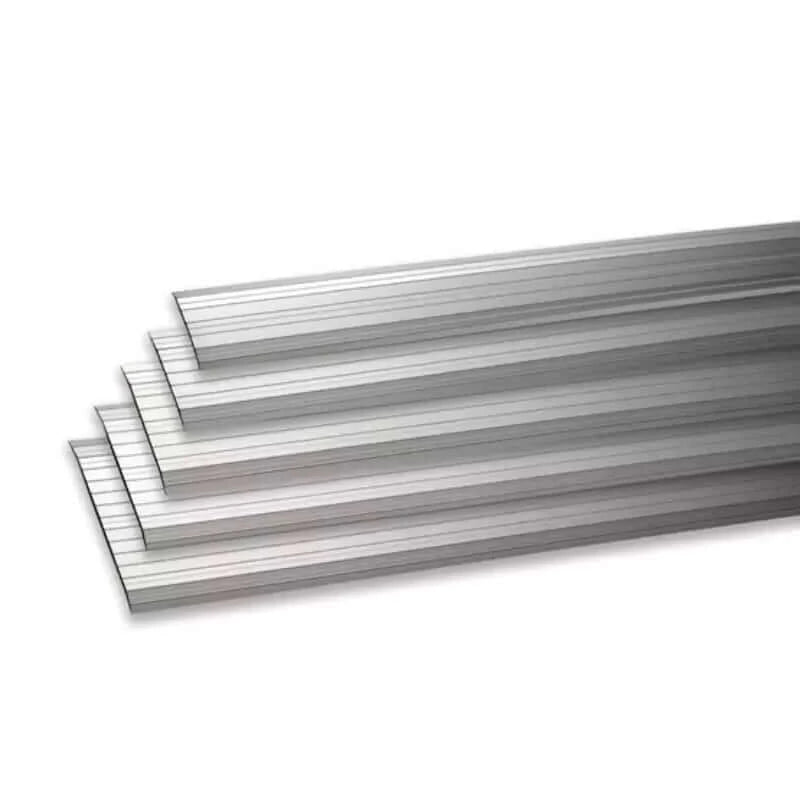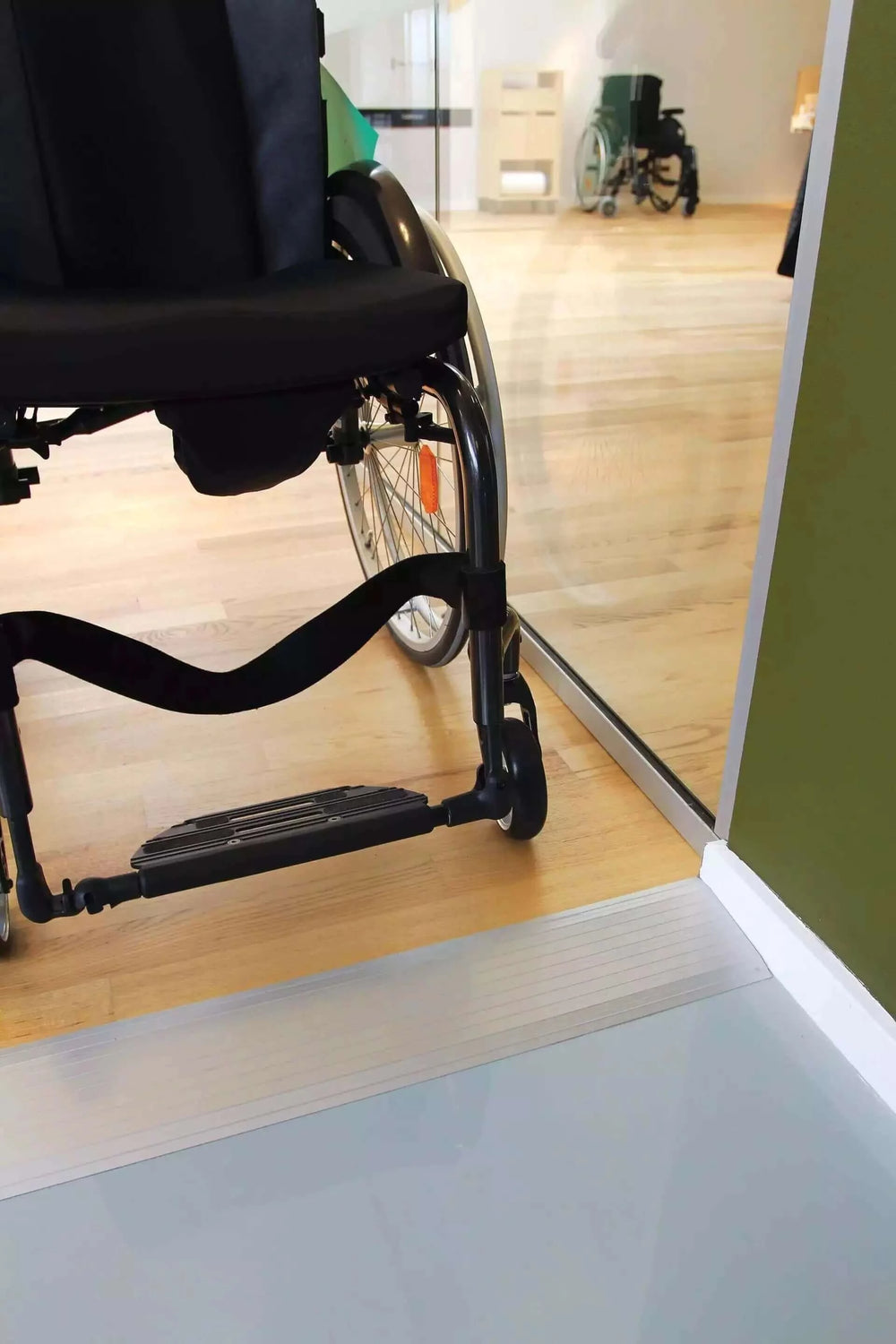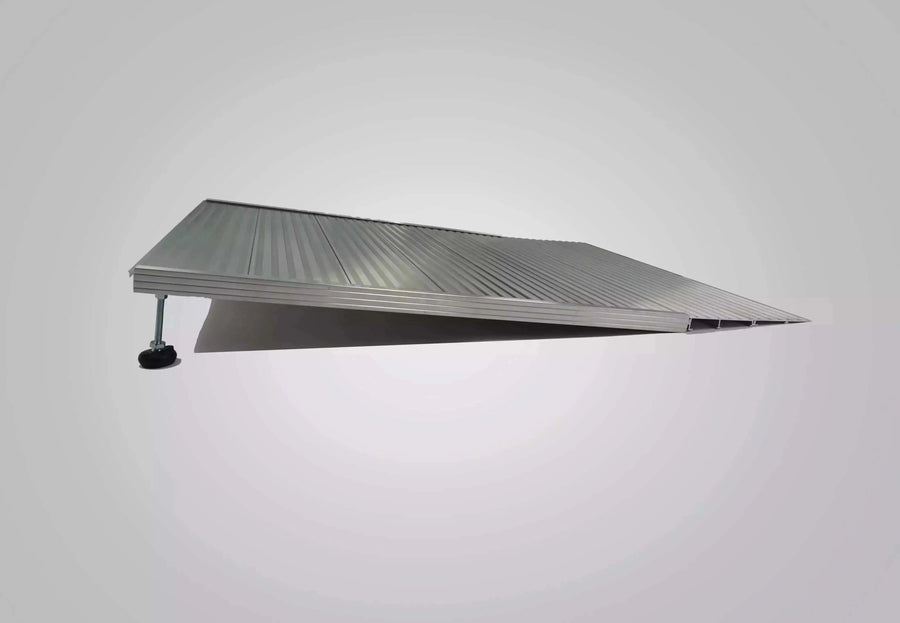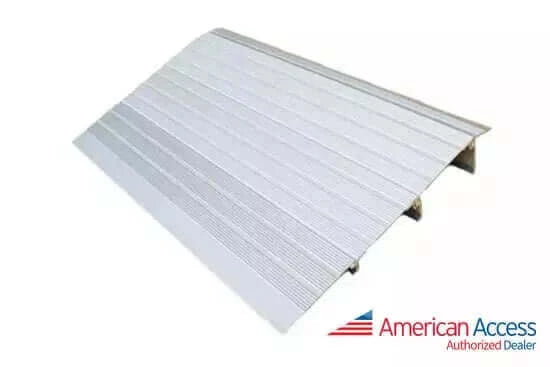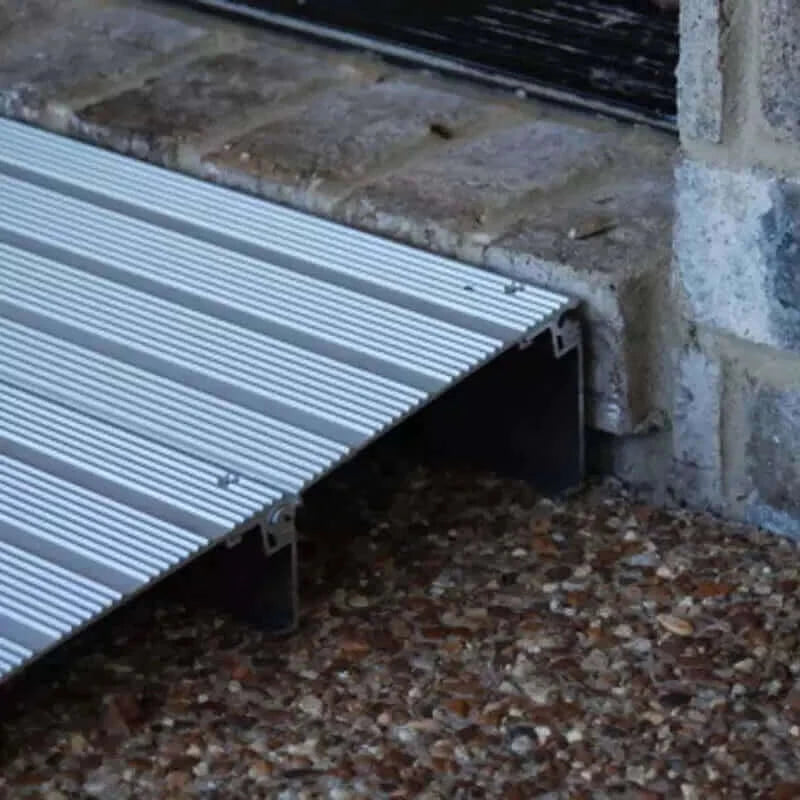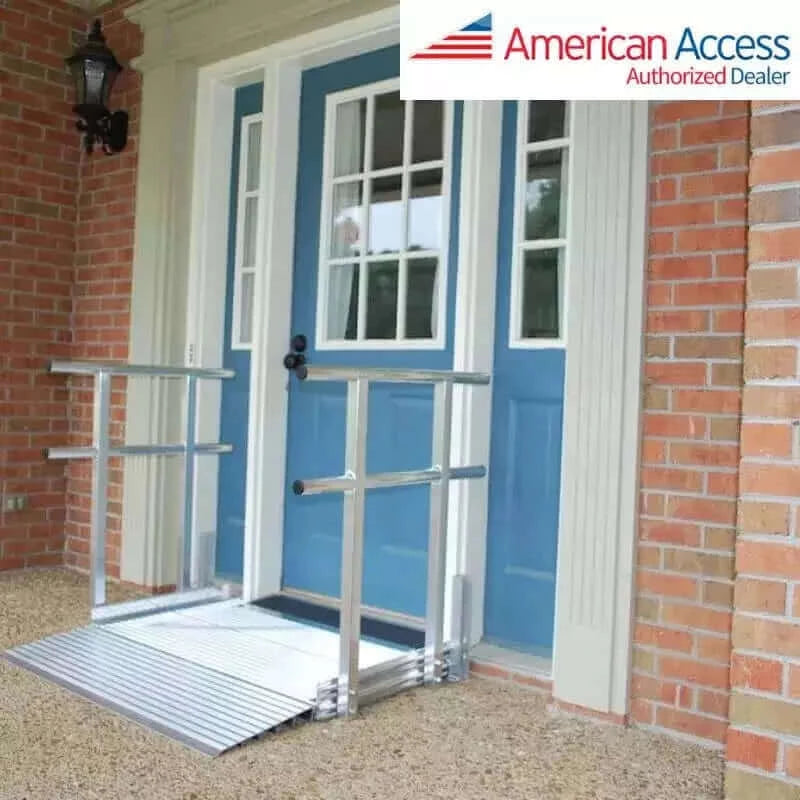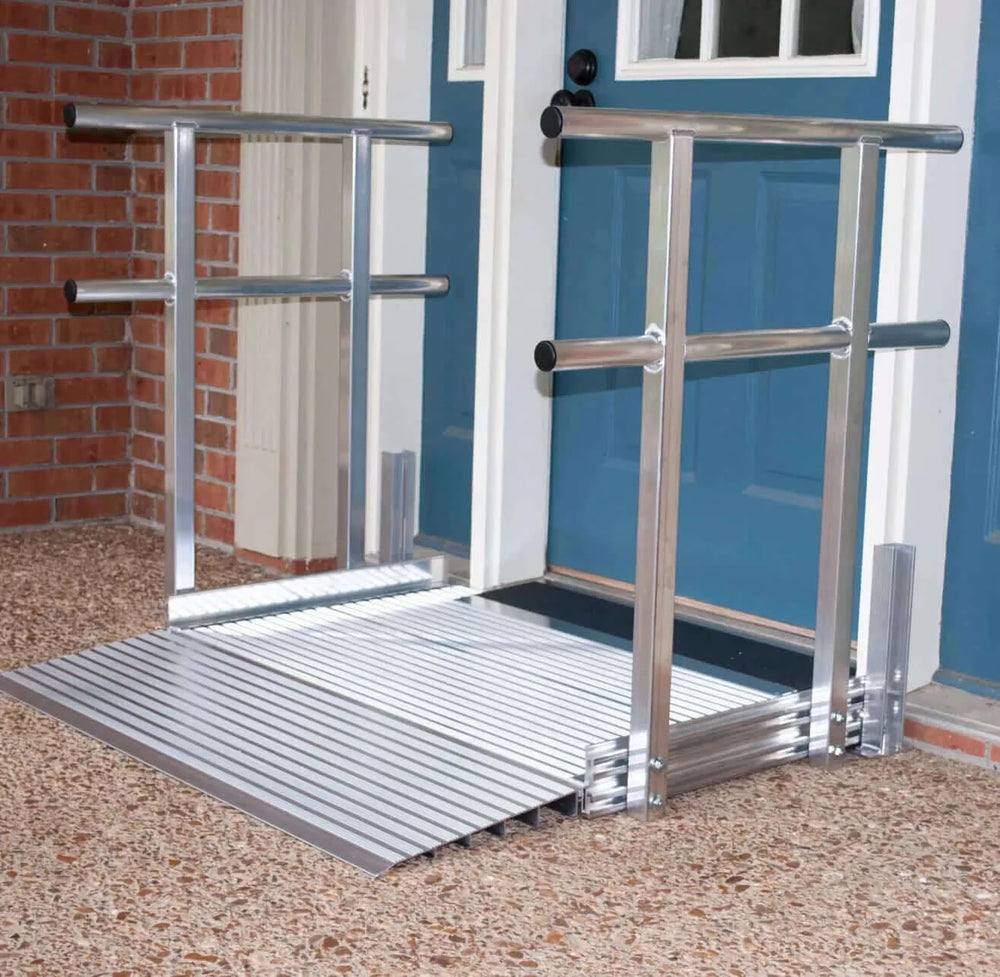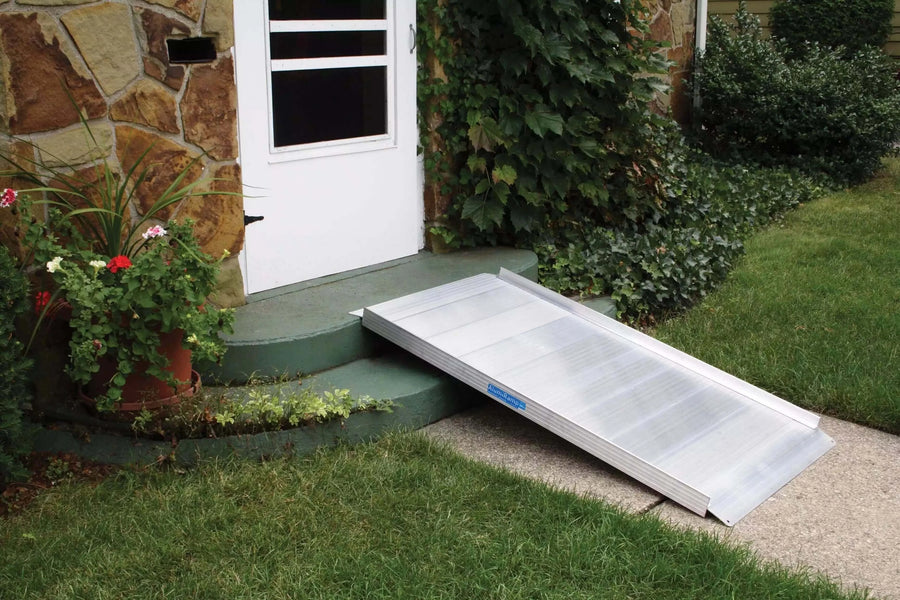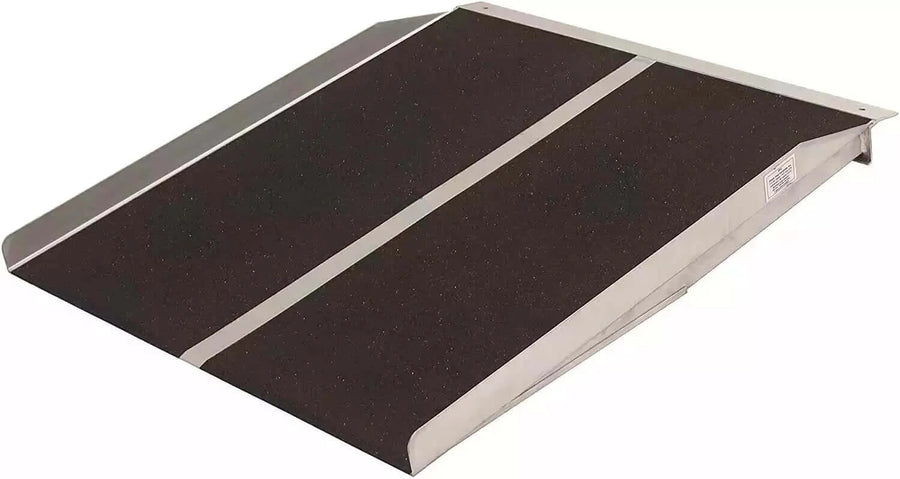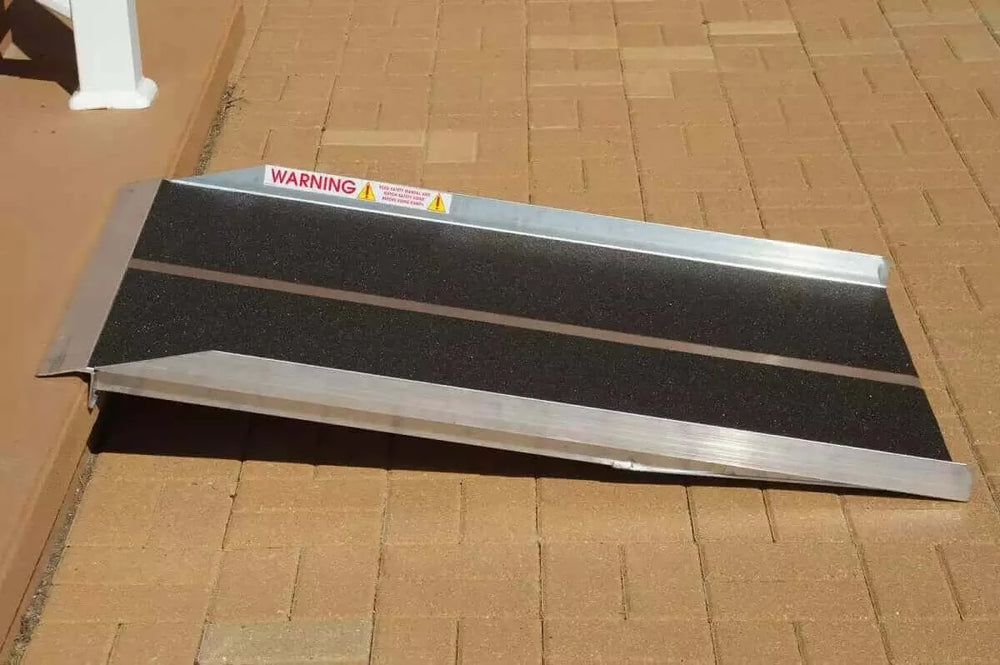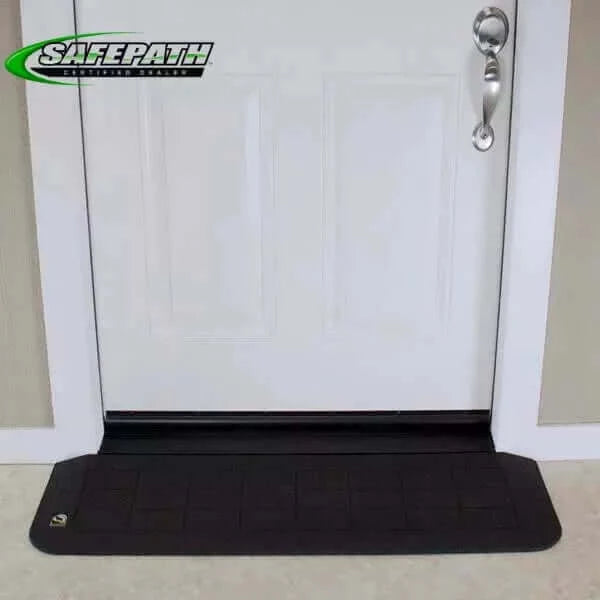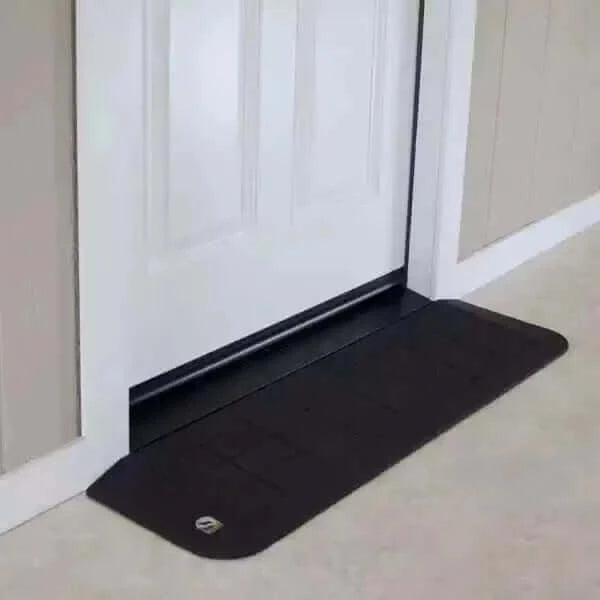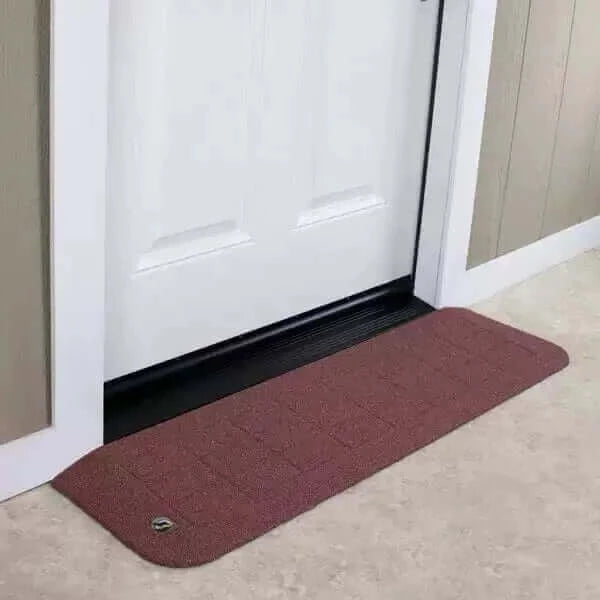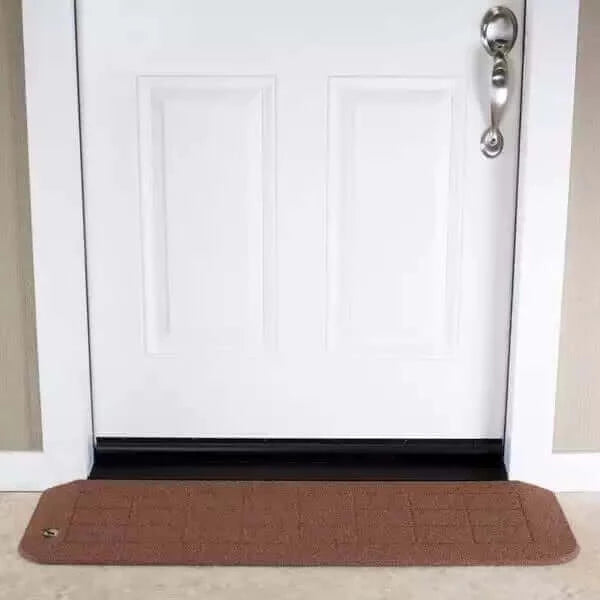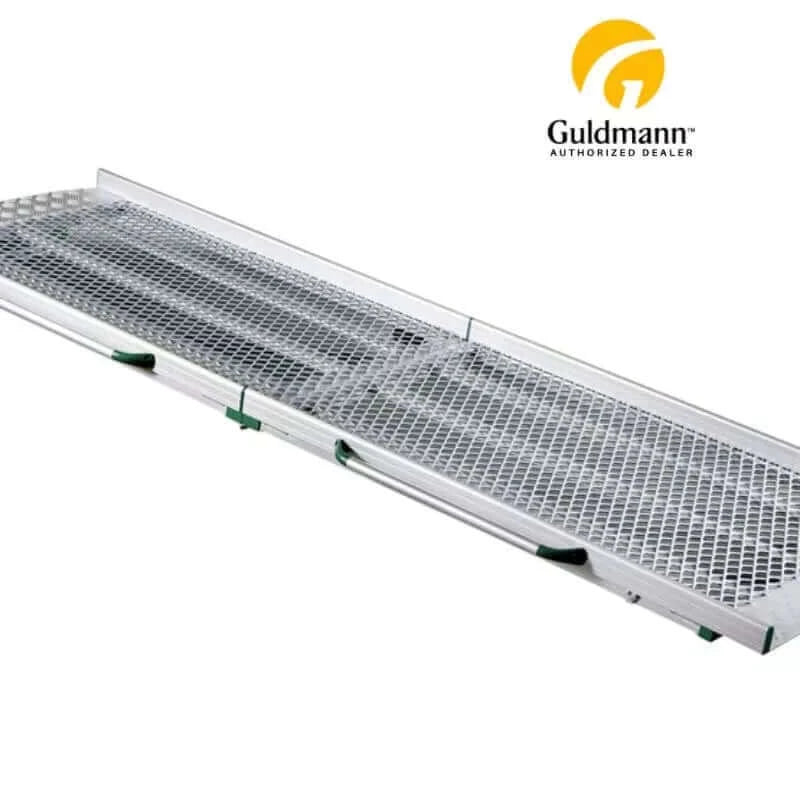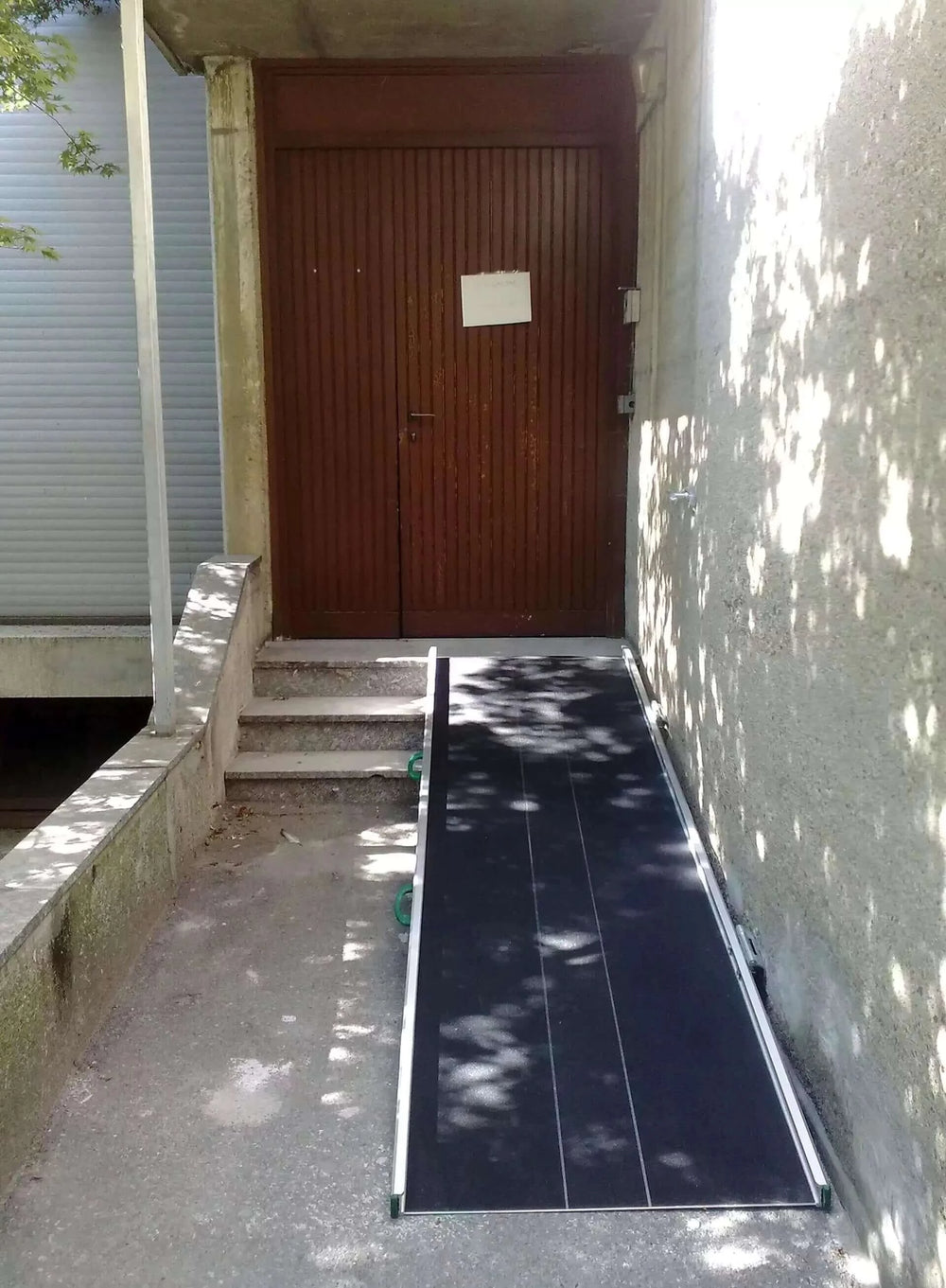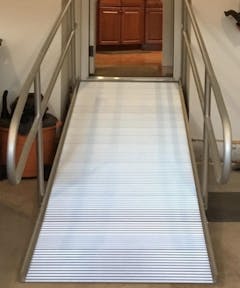Reliable Ramps Offers an Extensive Collection of Home Wheelchair Ramps
Home Wheelchair Ramps can vary from a small threshold ramp needed to get over a small threshold through a doorway that has a height difference of less than an inch, to a larger set of stairs at the main entrance that requires a larger modular ramp.
Be sure to learn about all the different options you have for Home Ramps by reading our Complete Guide To Choosing Your Wheelchair Ramp.
Home Wheelchair Ramp Options
- Portable Ramps - Portable Wheelchair Ramps are a convenient and practical solution for providing access to your home for individuals with mobility challenges that need a ramp they can move around or travel with easily.
- Threshold Ramps - These ramps are smaller and typically made of rubber to overcome smaller thresholds. They're designed to make it easier for wheelchair users to navigate doorways by eliminating the obstacle presented by the raise threshold.
- Modular Ramps - Modular Ramps are customizable and adaptable solutions for providing safe and easy access for wheelchair users at home who have larger thresholds. These are typically used for main entrances that need to overcome the front steps, which could be upwards of 30" heights.
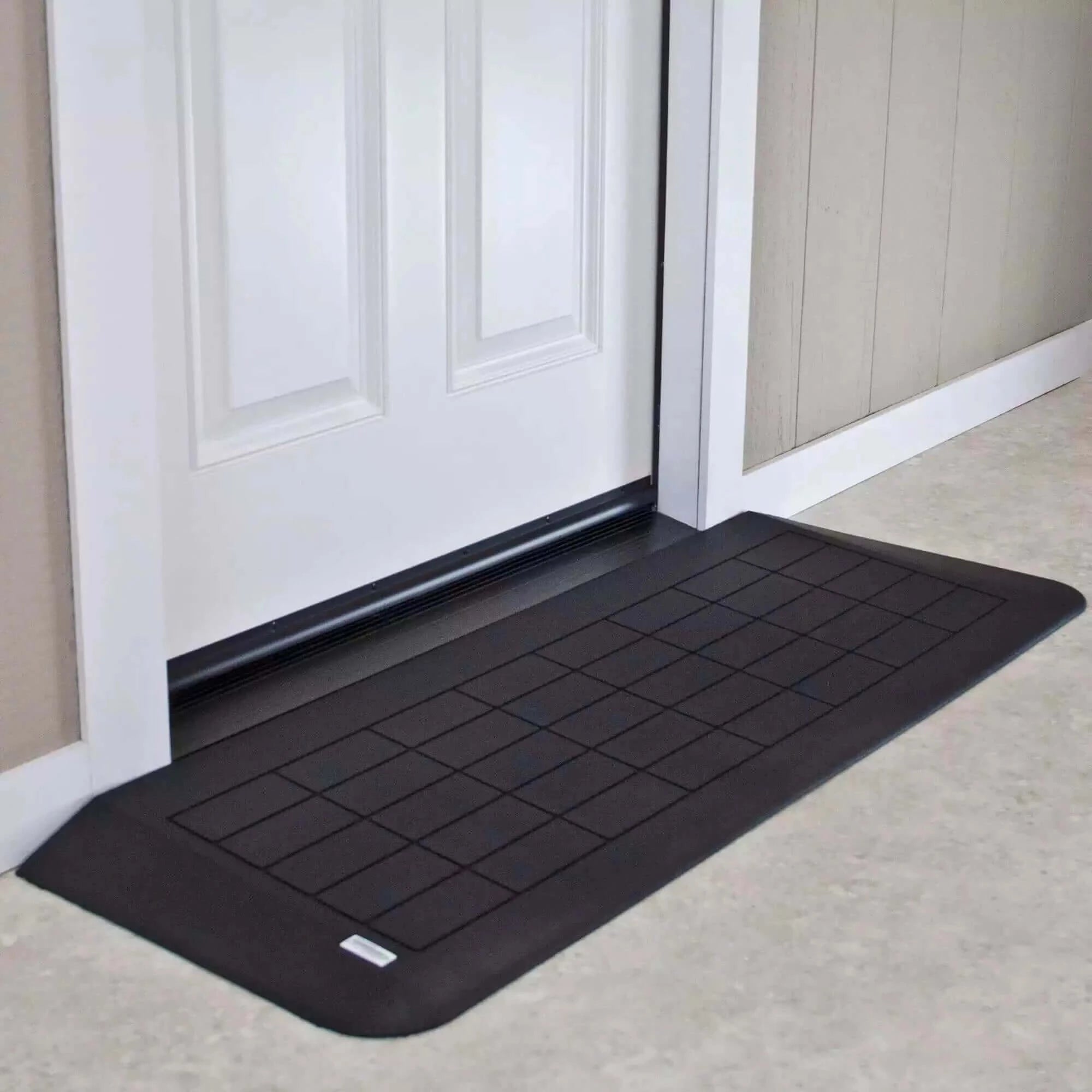
FAQs
Frequently Asked Questions About Ramps for Homes
Wheelchairs ramps for homes can be made from various materials, including aluminum, fiberglass or composite rubber materials. The choice of material depends on factors like durability, maintenance and cost.
The length of a wheelchair ramp depends on the height it needs to cover and the slop required for accessibility. As a general guideline, a 1:12 slope ratio (1 inch of rise for every 12 inches of run) is often recommended for residential ramps and required for commercial ramps.
The short answer is NO as it's not required. Most portable and threshold ramps will not have handrails. For larger modular ramps, handrails provide additional safety and support for users, especially those with limited mobility.
The maintenance needed depends on the ramp's materials. Wooden ramps will require more regular maintenance, such as sealing and painting, to prevent rot and deterioration. Aluminum ramps generally require less maintenance, and that's the reason Reliable Ramps recommends aluminum ramps.
Yes! There are portable wheelchair ramps available that can be used temporarily and moved as needed. These ramps are often made from lightweight materials like aluminum and can be useful for travel or temporary accessibility needs.
Yes, wheelchair ramps for homes can be designed to accommodate various mobility devices, including scooters, walkers and crutches.
Some regions offer grants, assistance programs, or tax incentives to help cover the cost of installing wheelchair ramps for accessibility. Research local resources or organizations that support people with disabilities.
Remember that specific details and requirements may vary depending on your local and individual circumstances. It's always a good idea to consult local experts or professionals when planning to install a home wheelchair ramp.



